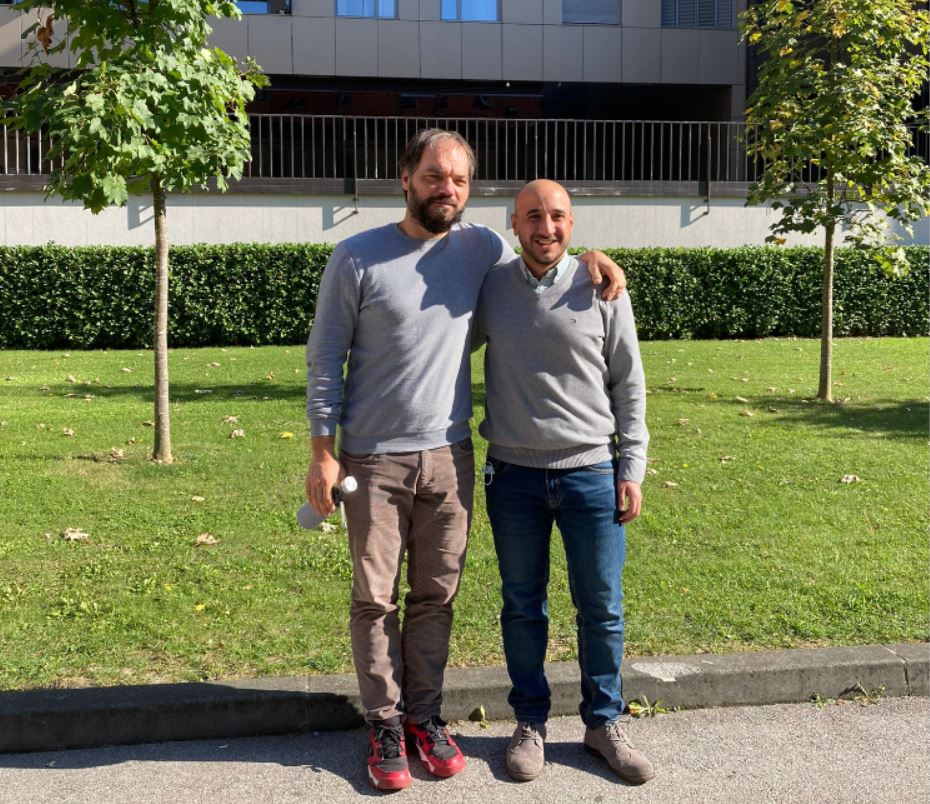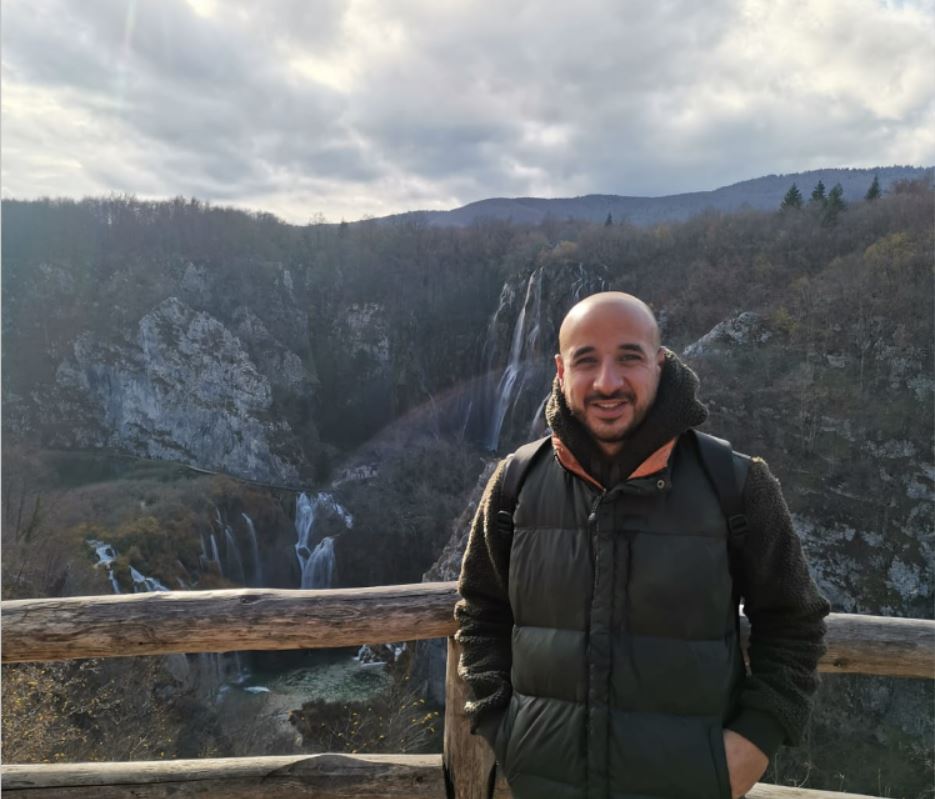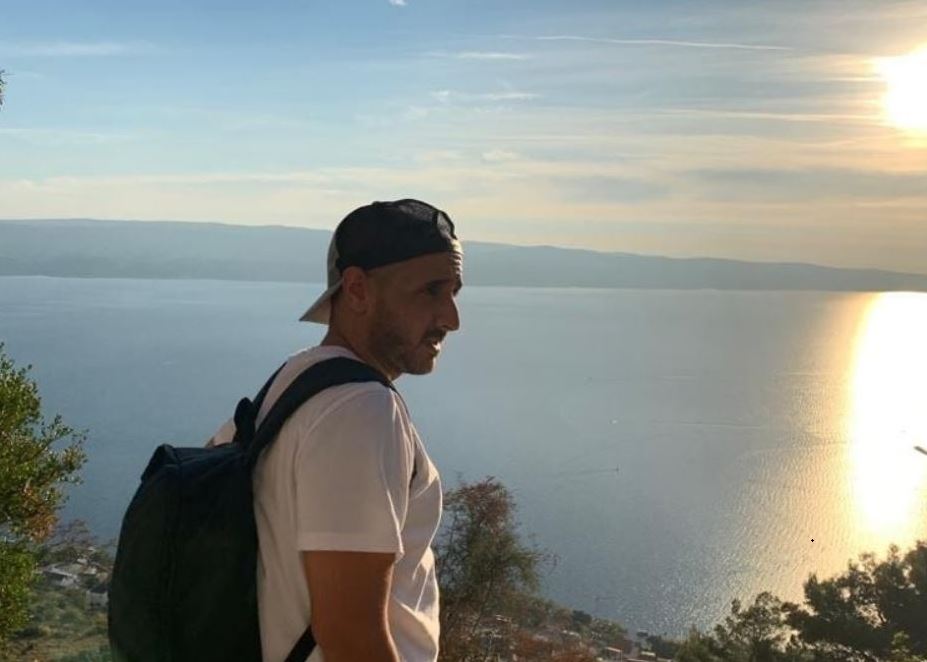Superb Education at Harfa International School Attracts More Foreigners to Split
There are many reasons why people fall in love with Split and are attracted to it. Most of those reasons involve great climate and a laid-back life style compared to the western world. But lately we hear more and more people move to Split permanently because of superb education offered at Harfa International School. It’s not a rarity that we hear:
- We came on holidays, fell in love with Split, and when we learned about a great education offered to our children, we decided to call this city our home. Split is every parent's dream come true!
We are aware of the perks Dalmatian life style offers, but the growing number of these stories got us more interested and we wanted to hear the parents' experiences first hand. We talk to Sarah and Don Miller from Canada who came to Split during the pandemic.
- During the first lock-down, we extended what should have been a one-week vacation. Our friends recommended Split and we arrived "unexpectedly". We fell in love with the climate and culture at first sight, but as the fall approached and our children were about to start school, the biggest unknown for us was the quality of education in Croatia. We were delighted to discover that the Harfa International School was opening that year and the rest is history! Now we can't imagine life outside of Croatia because we love the combination of the life style and the excellent education our children receive!
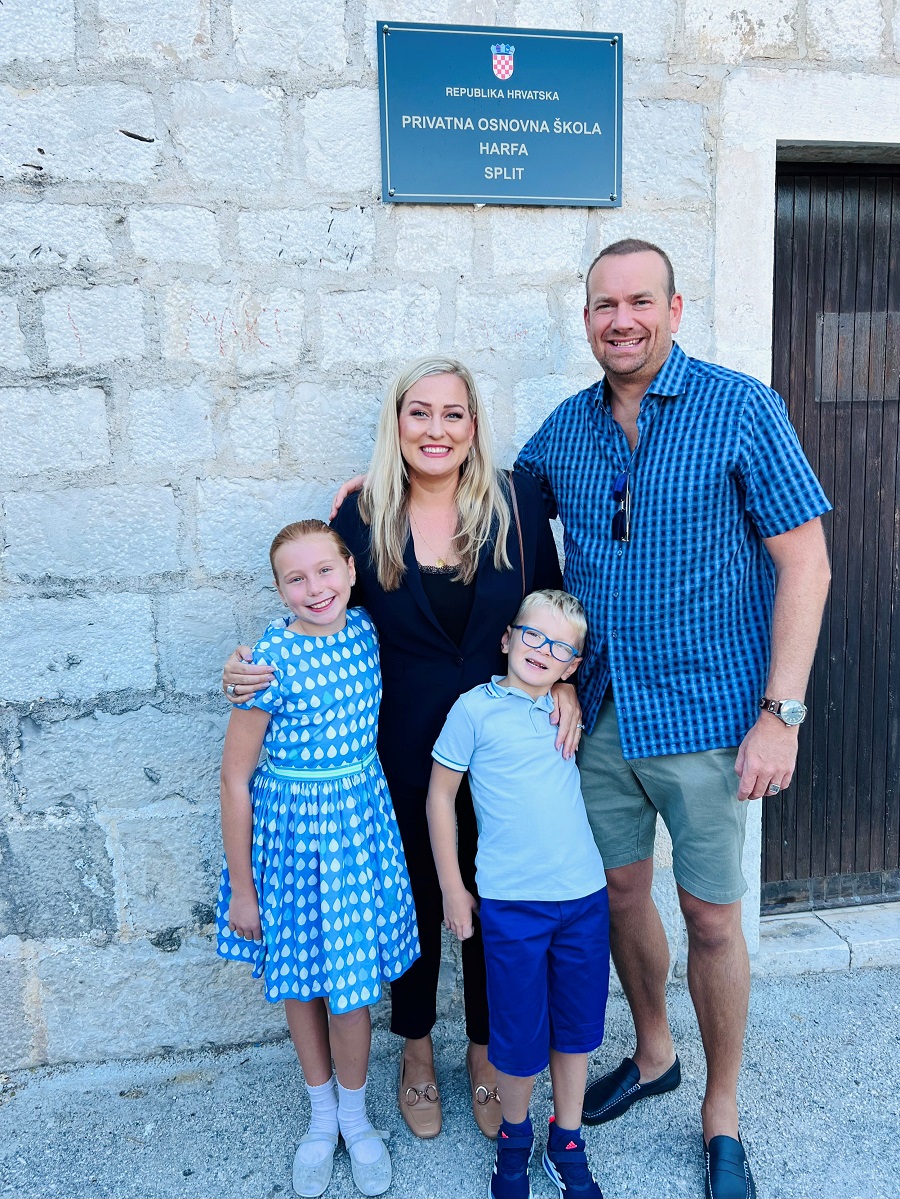
The Miller family from Canada in front of the Harfa International School, the reason they stayed in Split
They are not the only one with such story. The Vellis family from California, USA share a similar experience.
- - In the summer of 2020, we came to Split for the first time on vacation and never left! We were delighted by the people, the food and the relaxed mentality, which is completely different from that in the West. The fact that life is not just about how many hours you work, but also about the time you spend with your loved ones really made a wonderful impact on us as a family and we decided to raise our children that way too. Of course, life by the sea is what attracted us, but when friends told us about the Harfa International School and after learning more about Harfa's approach to education, we realized this is exactly what we were looking for our child.
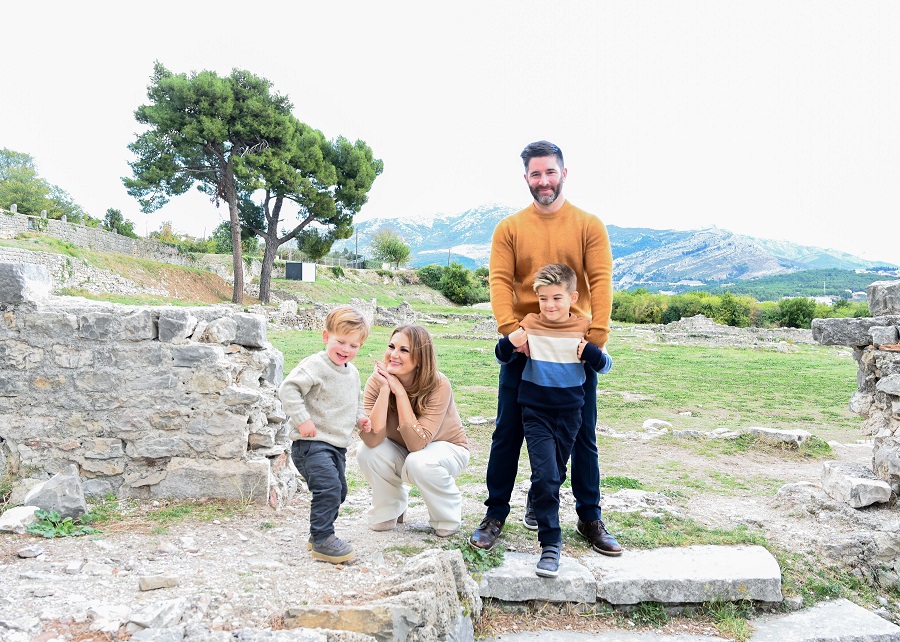
The Vellis family from California, USA.
Returnees from Australia; Dubravka and John Šušnjara give us their share of experience.
- Our roots are Croatian, but we lived in Australia for many years. We were thinking about returning for some time now because we wanted to provide our children, who were born in Sidney, with a safer and better life style. The pandemic was the trigger to think about the idea of return more seriously, but our children did not speak Croatian and we knew that their education would be a challenge. When we heard about Harfa International School in Split and what kind of education that school offers, we didn't hesitate for long. The decision was made. The whole family moved to Split. Through school, we met other parents and became friends. Our children grow up in an international environment, speak English but also learn Croatian very quickly. We all enjoy a completely different dimension of life compared to Australia. I especially emphasize the family dimension because now we have much more time to enjoy spending time with family and friends, which is an important issue for us.
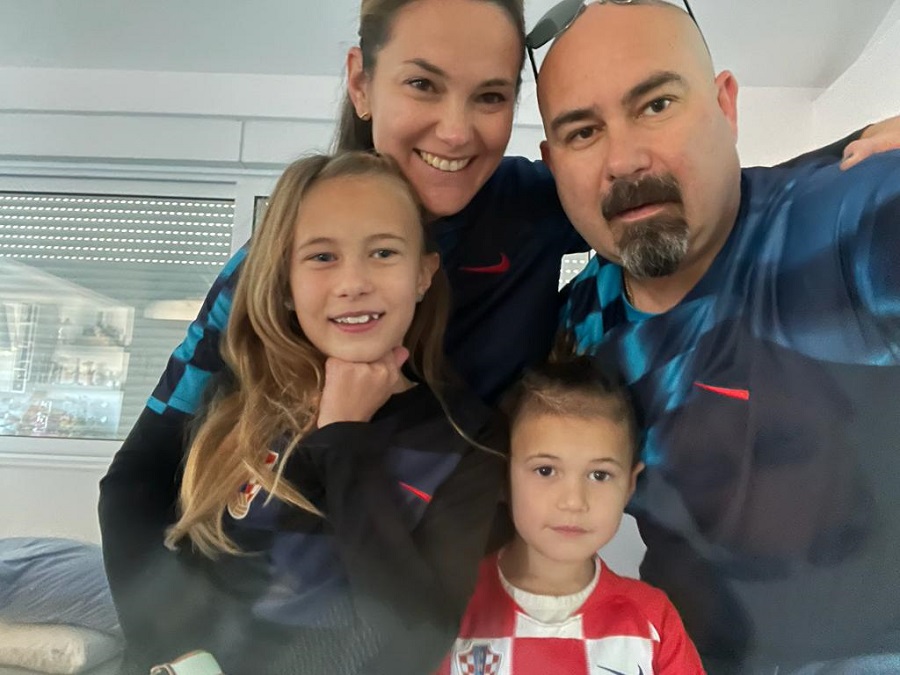
The Šušnjara family: An important parto f our decision to return to Split played the existence of Harfa International School.
We are interested to learn the reasons Split is a better choice for families, compared to some other world cities.
- For our family, the climate, people, food and family lifestyle are what won our hearts. We love various outdoor activities such as hiking, swimming in the sea, boating and cycling. In winter, the Christmas fair and ice rinks are fantastic! Our children really love the Christmas lights around the city and of course the fireworks on the waterfront for New Year's Eve. We also enjoy traveling in Europe because the destinations are much closer compared to Canada. – the Millers tell us.
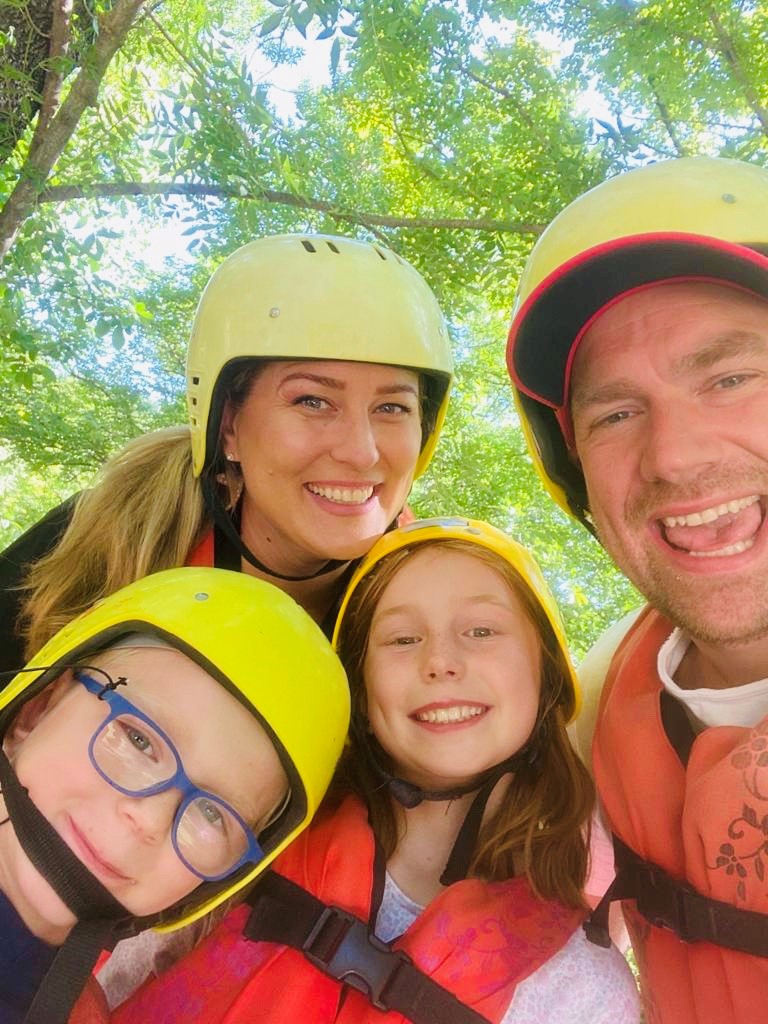
The quality of family life that we found in Split is priceless.
- Driving in Split is easy compared to California! Also, when we lived near the Pacific Ocean it was always too cold to swim. There is something to do in Croatia all year round, and we also like the availability of so many nearby countries and national parks. – the Vellis explain.
- Location! Split is the perfect starting point for exploring this beautiful country, but also the perfect place from which to visit Europe and the world. Compared to Australia most destinations are very close with almost all European destinations within a 2-hour flight. Another big advantage is a relaxed lifestyle. Food preparation and socializing are an everyday thing here. Such a thing can hardly be experienced in many western countries. We also like how national sporting events take priority over everything else. We still can’t believe that everything stops in Split when Hajduk or Croatia play. - adds John Šušnjara, obviously a passionate fan himself.
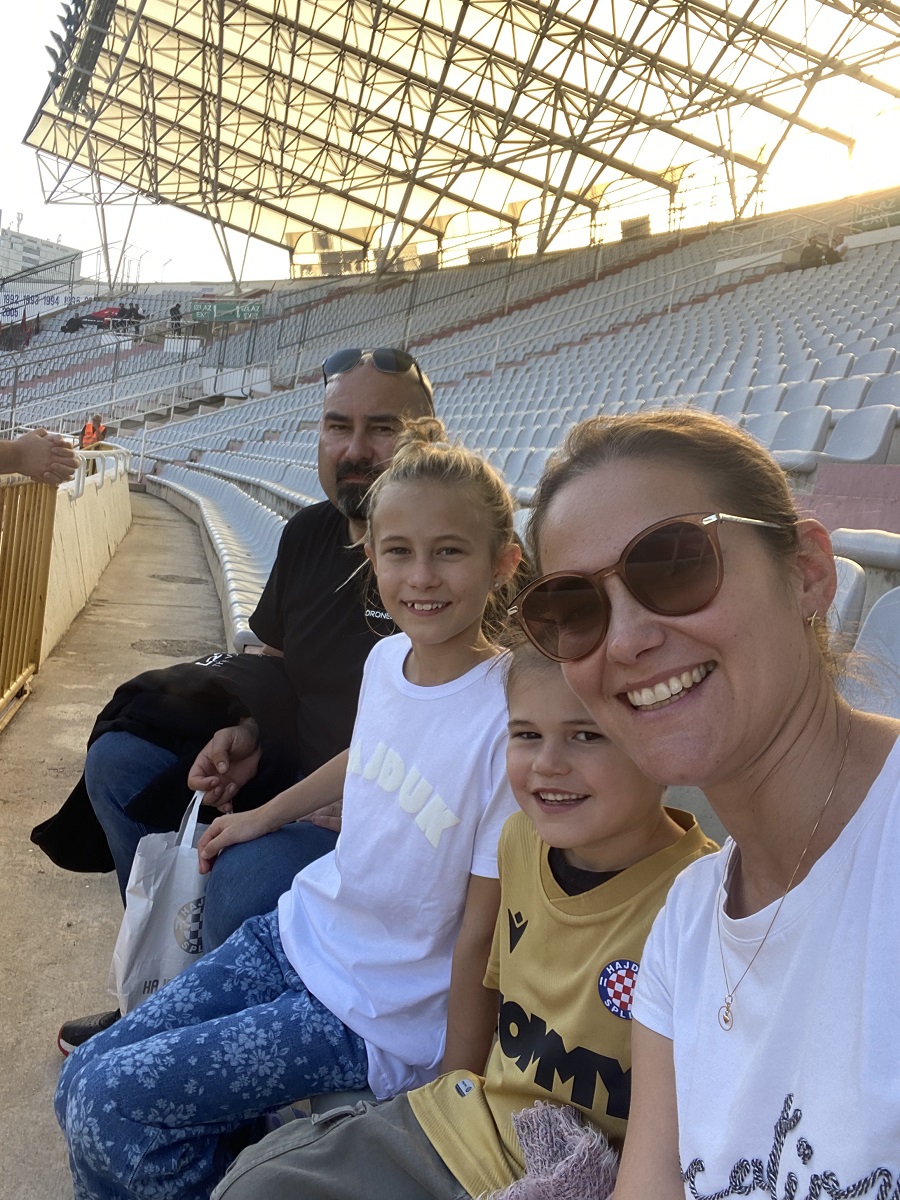
The lifestyle that is commonplace here can hardly be experienced in many western countries.
All of these stories keep coming back to the importance of the quality of education they found for their children right here. We are interested in why the Harfa school attracted them and how that school is different from the many others they could have chosen.
- Harfa was recommended by many parents we met in Split and right from the start we recognized the right opportunity and place for our child. We are constantly amazed at what this school offers. The diversity of students and programs gives our child many opportunities to learn and grow. We can't wait to see how the school will continue to expand and develop. We are sure that it will be a place of wonderful and exciting opportunities not only for students but also for parents and teachers in Split. - the Vellis tell us.
- We chose Harfa because of its unique philosophy and approach to learning, but also due to the vast experience of the school's founder, Mrs. Irena Orlović, who delighted us at first. We believe in her vision of approaching students as a whole person and supporting them to reach their full emotional and intellectual potential. We are extremely satisfied with the quality of education at Harfa. Our children are making progress and are well adjusted! We are very familiar with many educational systems in the world and that is why we can safely say that Harfa is unique precisely because of the combination of the emotional and social aspects of the child's development with education based on research, project learning and encouraging internal motivation and taking responsibility. This is also in line with our values. – the Millers explain to us.
- Dedicated teachers and the most modern teaching methods, with SEL (social-emotional learning) and IB (International Baccalaureate) approaches which are especially important to us. We immediately recognized the goals and methodology and this played a big role in our decision, as well as the wonderful location on where the school is located. Harfa provided us with security and played a key role in the adjustment of not only our children but also the whole family when we first moved to Croatia. The IB learning methods, the location, the employees and the combination of English and Croatian make this school a unique and very cool place to learn.
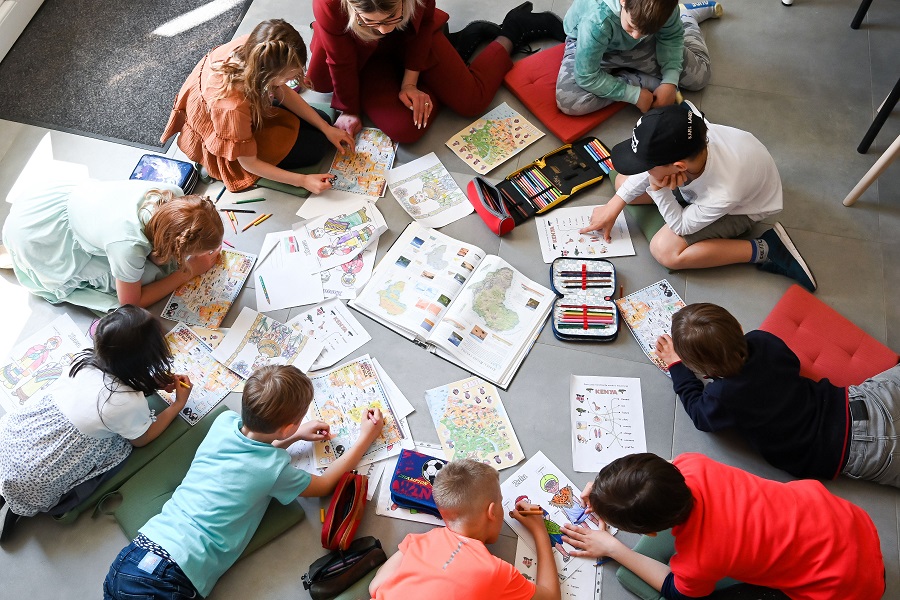
Dedicated teachers and the most modern teaching methods based on SEL (social-emotional learning) and the prestigious international IB (International Baccalaureate) approach make Harfa the most attractive place for schooling children.
And how do the children feel going to Harfa International School?
- Our children are so attached to the school environment and friends that they don't want to miss a single lesson! They achieve excellent results. We are happy that they can do this in a comfortable and safe environment for them, and most importantly, they have learned to love learning, which we would like to become a lifelong habit. – the Millers add.
- Our little girl loves her school and teachers very much. She has never shown the slightest bit of hesitation about attending school, which is proof enough for us that this was the best decision we could have made. Her biggest educational improvement is in math and social skills, but most importantly, she shows constant progress in everything. Since she has been in Harfa, she has become a real thinker; she asks more questions, thinks about advice when we offer it and ultimately makes balanced decisions independently. We have always believed that trust in a child's abilities is the key to healthy growing up, and this is proven to us every day. - concludes John Šušnjara.
- Every day our child goes to school excited about what is to come and returns home with a list of things he learned and did that day. We are impressed by his knowledge of math, but also his progress in the Croatian language, given that it is not his mother tongue. Now he is teaching us Croatian! – we hear from Bri and John Vellis.
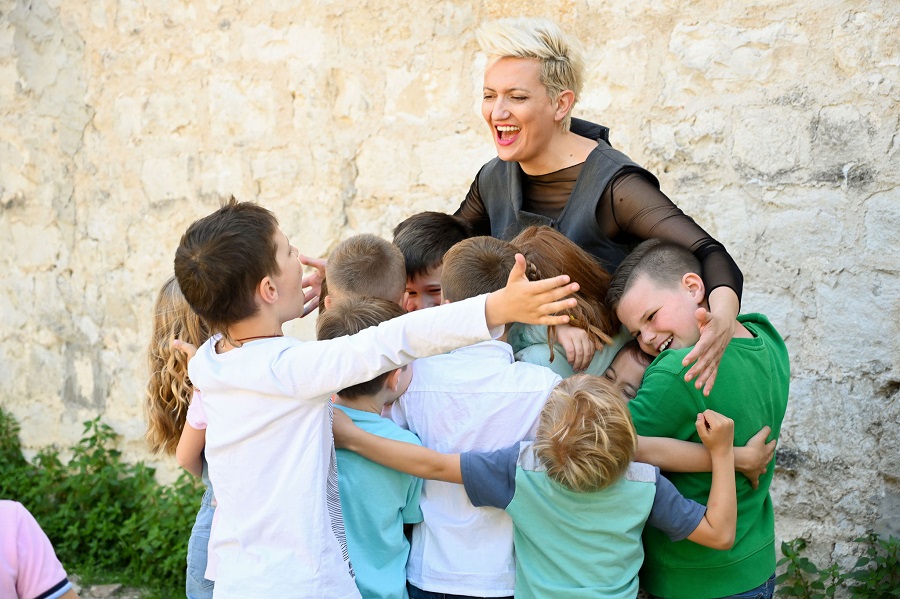
The founder of the Harfa International School is Irena Orlović, MSc. psycho-social counseling, psychotherapist and social entrepreneur who represented Europe in the documentary film FIVE as one of the five women who change the world.
Through Harfa International School, Irena Orlović is a representative of the new generation of social entrepreneurs who are adding extremely important value for the city of Split. A value that serves as a basis of a better future, and that’s education. We are happy with the further progress of this story, which, let's face it, gives optimism for a better future.
Algebra International Summer School: Where Knowledge and Different Cultures Melt Together
August 4, 2022 - There are many reasons to visit Croatia this summer - meet the Algebra International Summer School.
Over the summer many students take (at least a temporary) break from studying and exams, seasonal jobs and enjoy more free time, some believe the summer sunshine is the perfect ingredient to get inspired and learn about new and interesting things.
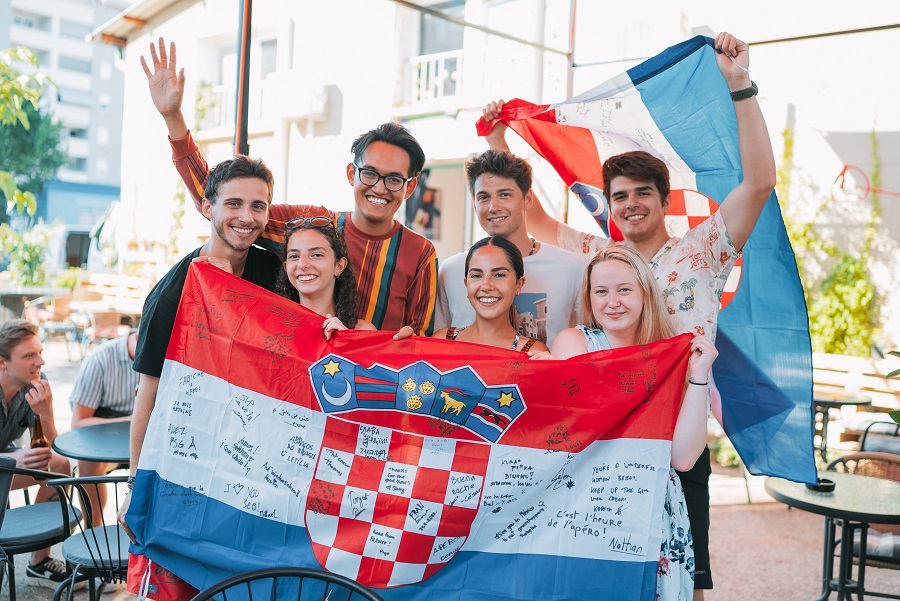
Almost a hundred students from all over the world decided to join Algebra's experts at the sixth edition of Algebra International Summer School from July 3 to 29. Students from France, Germany, Turkey, Ukraine, Denmark, Canada, USA, Mexico and Brazil came to Croatia to learn all about the latest trends in the world of digital technologies.
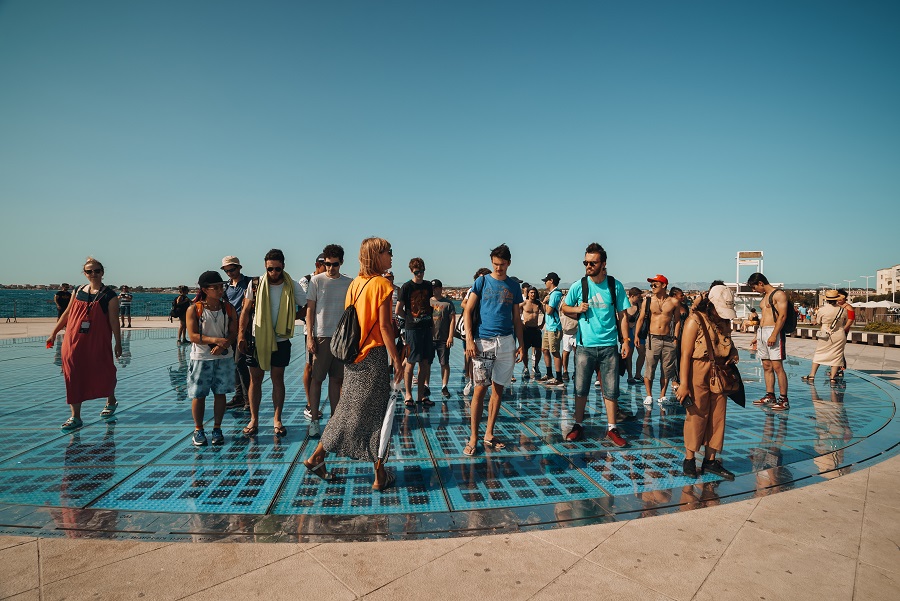
Apart from a new set of digital skills for their CV, the international environment was a unique benefit for students to develop soft skills of teamwork on the global market. In their free time, students had the opportunity to enjoy the sun, sea and other beauties of Croatia as a top European summer destination.
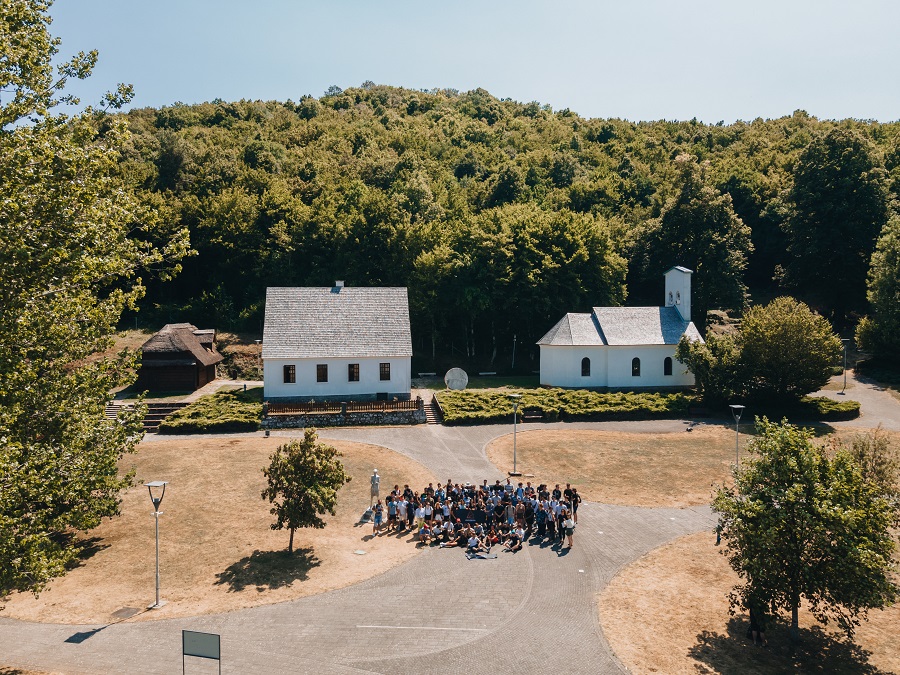
Algebra's International Summer School consists of as many as seven courses with an additional course on Croatian language and culture. This year, students could choose between very different professional courses and expand their knowledge in Artificial Intelligence, Cyber Security, Data-Driven Storytelling, Management and Entrepreneurship for IT professionals, Mobile Application Development, Digital Marketing and Experimental Drawing. However, the lectures and content at the International Summer School are far from standard and usual. The students had the opportunity to upgrade their skills and knowledge and learn from professionals from leading Croatian and global companies in the field of digital technology, such as Bornifght, Degordian and Q Agency. In addition, they tested and demonstrated their own talents and capabilities. Students in the course of Experimental Drawing presented their talent and skills with their pop-up exhibition at the end of the second week of lectures on Algebra's new campus in Zagreb.
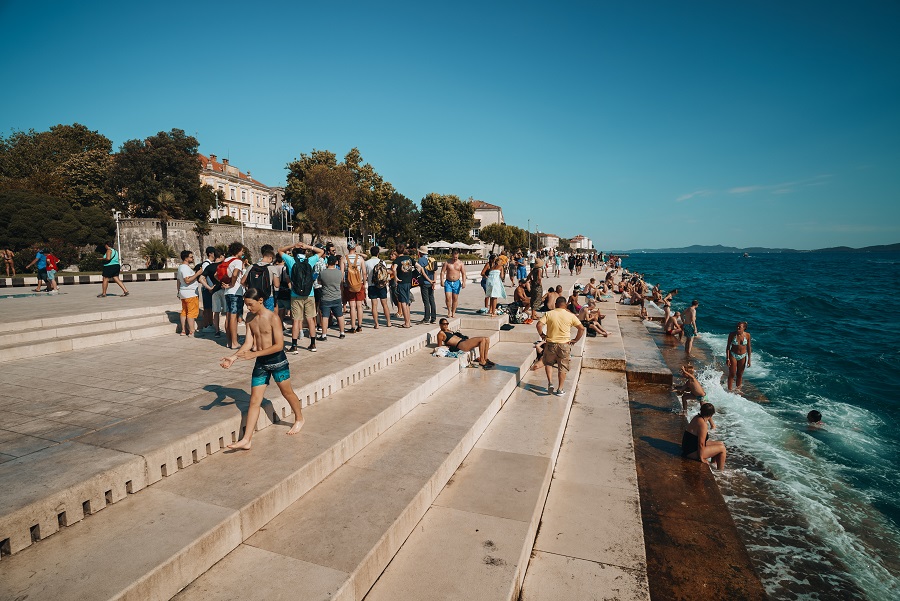
The Summer School programme was made perfect by our spend a week in Zadar – one of the most beautiful cities on the Dalmatian coast, thanks to the cooperation with the University of Zadar. It doesn’t get better than attending courses with the backdrop of the most beautiful sunset in the world and spending free time at sunny beaches!
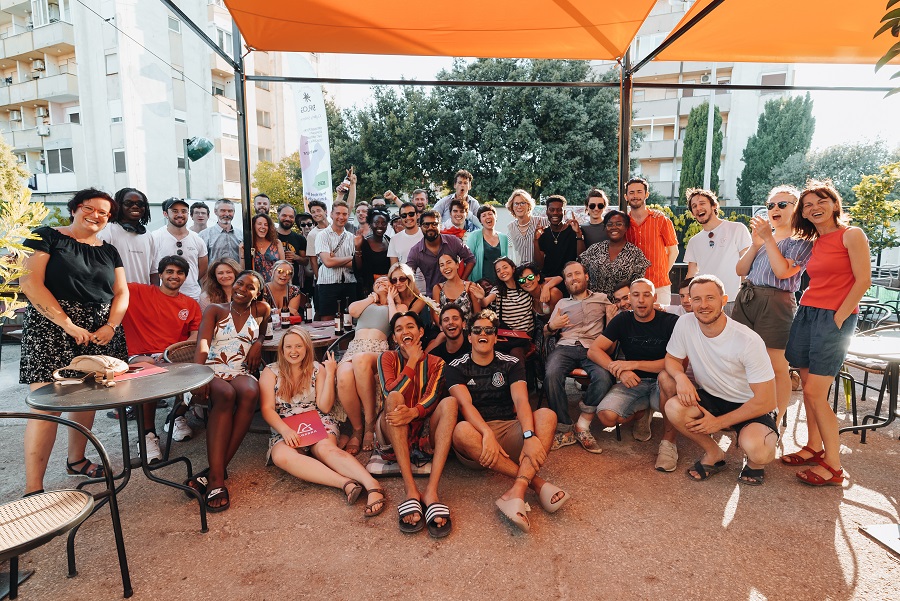
The final week we were back to where it all began – Zagreb! Summertime is the perfect season to explore the capital of Croatia, with rich history and cool summer festivals, so the students were happy to get another chance to explore it.
As part of the Croatian language and culture course, students created a video diary (travelogue) of their trip to Croatia; in groups of three to five, they recorded educational videos about Croatia and what they experienced and learned. The memories they carry with them, we are sure, will permanently enrich their private and future business lives.
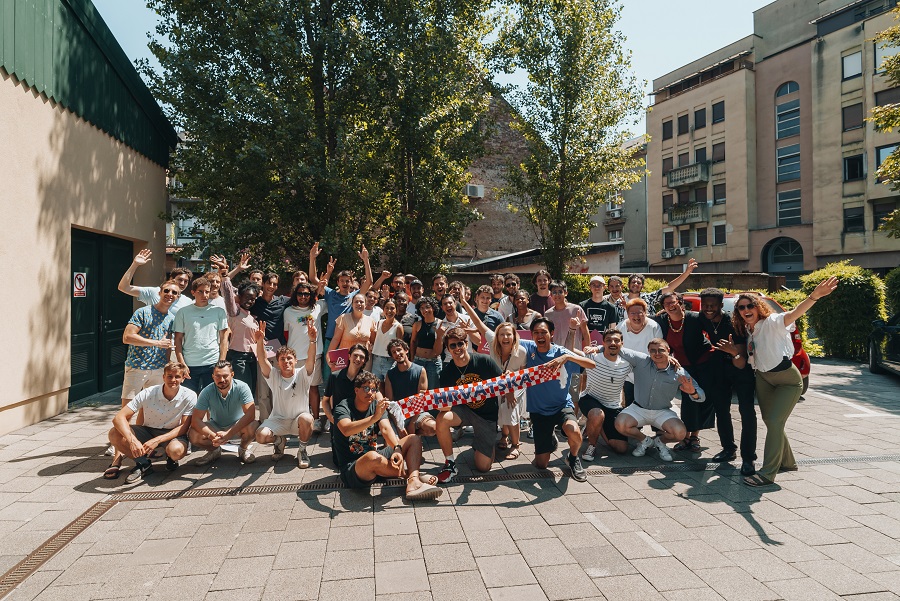
It has been an amazing journey of knowledge, technology, travel and friendship. We are proud of all our Summer Schoolers who passed their courses and received final certificates.
See you / Mach's gut / Vi ses / Бувай / Até mais / Görüşürüz / довидување / - Vidimo se!
****
You can learn more about the expanding syllabus of Algebra University College on the official website.
Interested in taking your higher education journey in Croatia? Check out the Total Croatia Study in Croatia guide.
Rise of Croatian Higher Education: Mislav Balkovic Interview, Dean of Algebra University College
June 5, 2022 - Croatia is becoming increasingly successful at attracting foreign students to its English-language higher education programmes, with the pioneering Algebra University College leading the way. TCN catches up with the Dean of Algebra, Mislav Balkovic.
One of the most interesting - and under-reported - positive trends in Croatia today has been the rise in numbers of foreign students choosing Croatia for their higher education, with many then choosing to stay in their newly adopted home upon graduation. With the media focusing on the emigration of Croatia's youth, this reverse brain drain, or brain gain, has been made possible by the availability of an expanded portfolio of high-quality graduate programmes on offer in the English language.
Without question, the leading academic pioneer in this field has been Algebra University College, which continues to raise the bar, as well as internationalise the quality of its higher education. Its recent partnership with Goldsmiths, University of London, is an excellent example of this. Having recently moved to a huge new campus, and with the highest percentage increase of students to its bachelor programmes last year, these are exciting times for Croatian higher education, and Algebra University College in particular. TCN caught up with the Dean of Algebra, Mislav Balkovic, to learn more about that, as well as what is coming next.
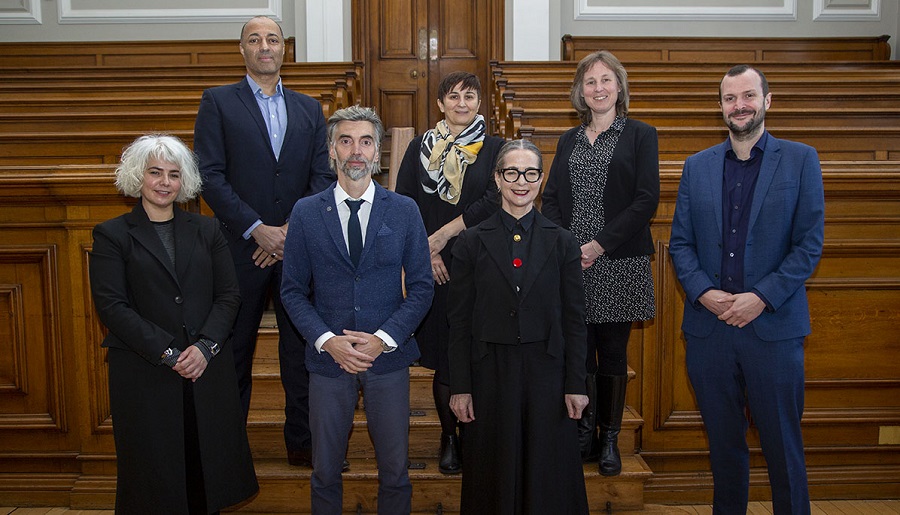
1. Croatia is perhaps not the first country that springs to mind in Europe when foreign students consider their higher education, but an increasing number are choosing Croatia for their graduate studies. What are the main competitive advantages that Croatia offers?
Competition in higher education in Europe and across the world is already high and only intensifying. In such circumstances, some countries and their institutions have been more successful than others. Croatia has a long tradition in quality higher education, and significant new investments in infrastructure and quality of our universities in recent years have strengthened this position. Apart from the universities per se, the quality of life, high level of security and touristic attractiveness of the country are additional factors in this equation. Finally, our 2013 EU accession and the Schengen agreement expected in months to come are also important. To conclude, from being the fastest growing touristic destination in Europe, Croatia is stepping up to become a fast-growing higher education destination. More than 80 study programmes delivered fully in English allow students to choose the best option in Croatia as their live and learn destination.
2. Algebra University College has been at the forefront of the higher education story in Croatia, and earlier this year, you signed an academic partnership agreement with Goldsmiths University of London. Tell us a little bit more about that, and how it came about.
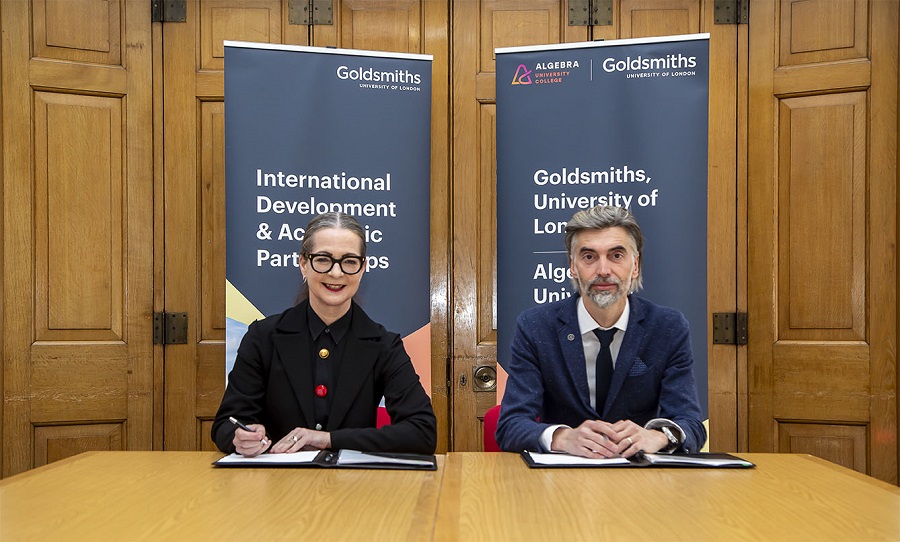
In order to be as attractive as possible not only to local students but also to talents from abroad, some 6 years ago we started to deliver our masters-level programmes exclusively in English. This required years of preparation, acquisition of teaching materials and books in English and further development of IT support systems for students. This increased our attractiveness and facilitated the recognition from Goldsmiths, University of London. For the past two and a half years we have been working together with our partners from London in order to get our programs recognized and validated in order for our students to be able to earn both degrees (Algebra’s degree and one from Goldsmiths, University of London) while studying at Algebra in Zagreb. This also counts as a recognition of the quality of Croatian national higher education by one of the top 500 universities in the world. Through the process, we managed to further develop our approach and incorporate some of the best practices from the British higher education system. In a nutshell, students who wish to obtain Algebra’s degree as well as a UK degree, could now achieve this in Zagreb, with an affordable financial investment. As a result, we started to also deliver our bachelor-level programmes in English so now international students can choose from a wide list of undergraduate and graduate study programmes / specializations. Our partnership with Goldsmiths, University of London is the only arrangement of this sort in Croatia. One of the reasons for how it came to be is most certainly the high marks in quality assessment that Algebra has been achieving for the past decade. The University of London wanted to have a high-quality partner institution, and they found it at our address.
3. You recently moved into a brand new campus as part of your continued expansion. Tell us a little about the facilities you now offer.
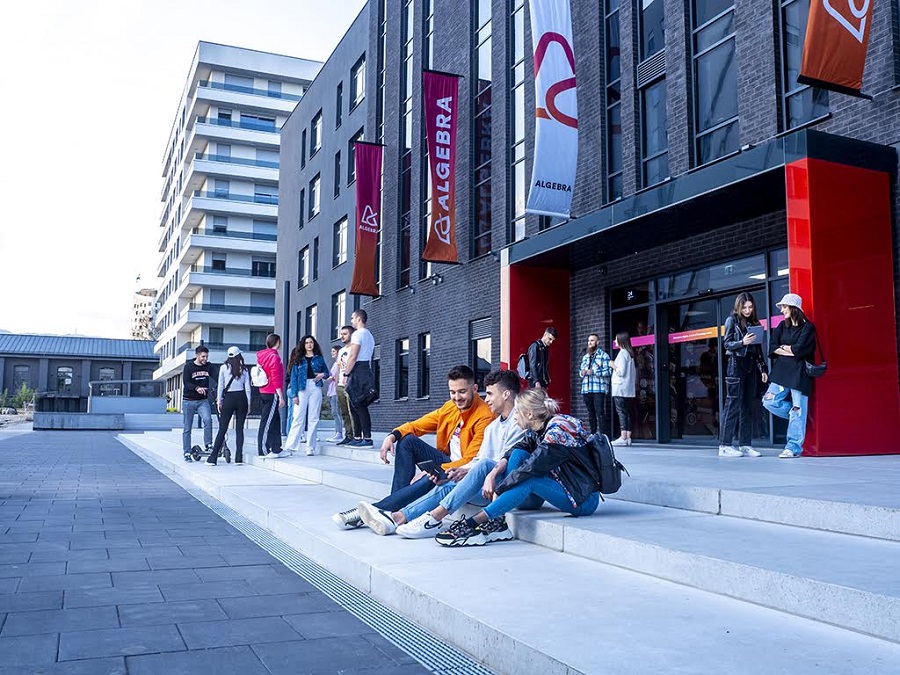
Our new campus was a 14.6 million EUR investment, by far the biggest such investment in private education in Croatia. Spreading over 12,000 sqm, the new campus has given us the opportunity to situate more than 35 fully equipped IT classrooms and lecture venues as well as the necessary infrastructure with the accompanying equipment. Apart from our new “Nimbus” data centre which boasts 80 physical servers and a supercomputer, students have at their disposal services and usage of our Innovation Lab, 3D Production Lab, fully equipped Audio & Video Studio, and a Production Room, library, exhibition halls and other facilities needed to ensure high-quality education. Students also have at their disposal 700 PCs, 40 3D printers of different types and sizes as well as networking labs and equipment providing them with a state-of-the-art learning experience in our digitally focused programmes in the areas of computer science, economy and arts. The new campus and its accompanying infrastructure are unmatched not only by Croatian higher education institutions but also by many other institutions globally.
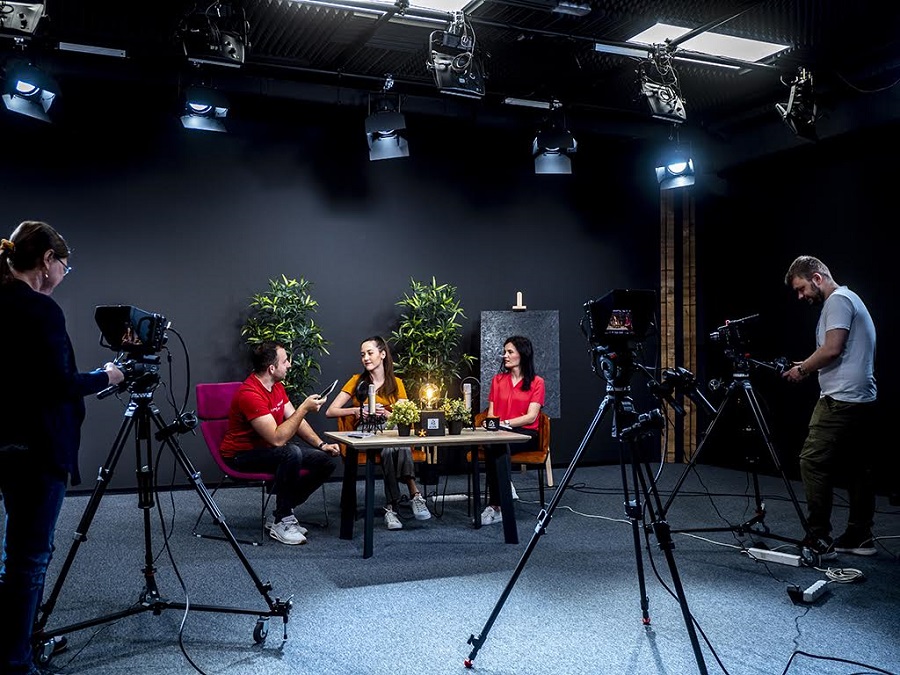
4. Graduate employment is an important consideration for many when choosing a course and location. Several students we have spoken to have spoken of their love of Croatia and hopes of finding work here upon graduation. Can you give us an overall picture of how the graduate labour market looks for Algebra students, and what help can you give those students in finding quality positions?
The Croatian labour market is highly vibrant, especially in digital careers. Our IT and digital industries have a double-digit growth each year and attract and employ more graduates than our higher education institutions are capable of producing. This means that there is a surplus of good and well-paid jobs for anyone with our degree or degree from other high-quality higher education institutions. An additional benefit of our degree is that it is easily recognized in all EU Member States as a result of 2013 referencing of our national qualifications framework and European Qualifications Framework. As a result, most of our bachelor-level students already work part-time, and more than 96% of graduates are employed in the industry some three months after graduation. The true testaments to this fast-growing market are the huge investments that have created two unicorns in Croatia, Rimac and Infobip. These and other companies now employ many international experts and have English as their main corporate language.
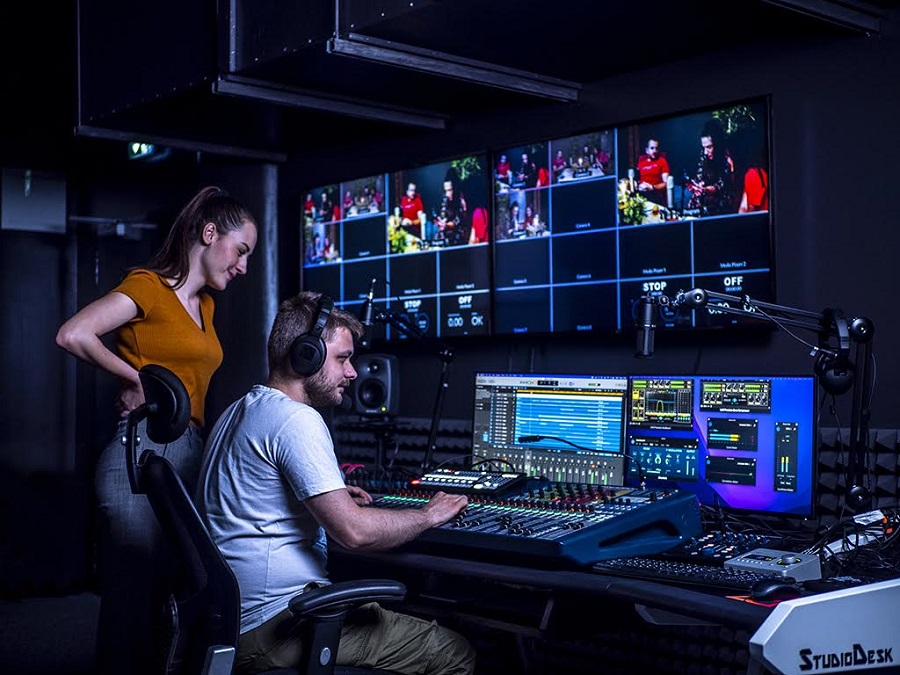
5. While most students are extremely happy with the efficiency of the paperwork from Algebra itself, Croatian bureaucracy is often cited by students as an issue. What practical steps can be taken to smoothen the bureaucratic process for foreign students?
The growth of the industry and the urgent need to attract talents to Croatia has changed this significantly, and there is now a continuous need for smooth and fast procedures. This is why our Visa centres in India and parts of the world now have strengthened processing capacity. Also, the Croatian Ministry of Interior now has people who are in close contact with international offices of universities. Depending on the country of students’ origin, with many there is already a signed agreement on the recognition of health insurance for students so they could work in Croatia as students more easily. Not all things are perfect, but universities are working together with employers to make the lives of international students easier. Also, the level of spoken English in Croatia is high so students coming from any part of the world should not experience any problems.
Still, to be sure all the procedures will be finished timely, international students coming outside the European Economic Area (meaning EU + few other countries), should start their admission process as early as possible.
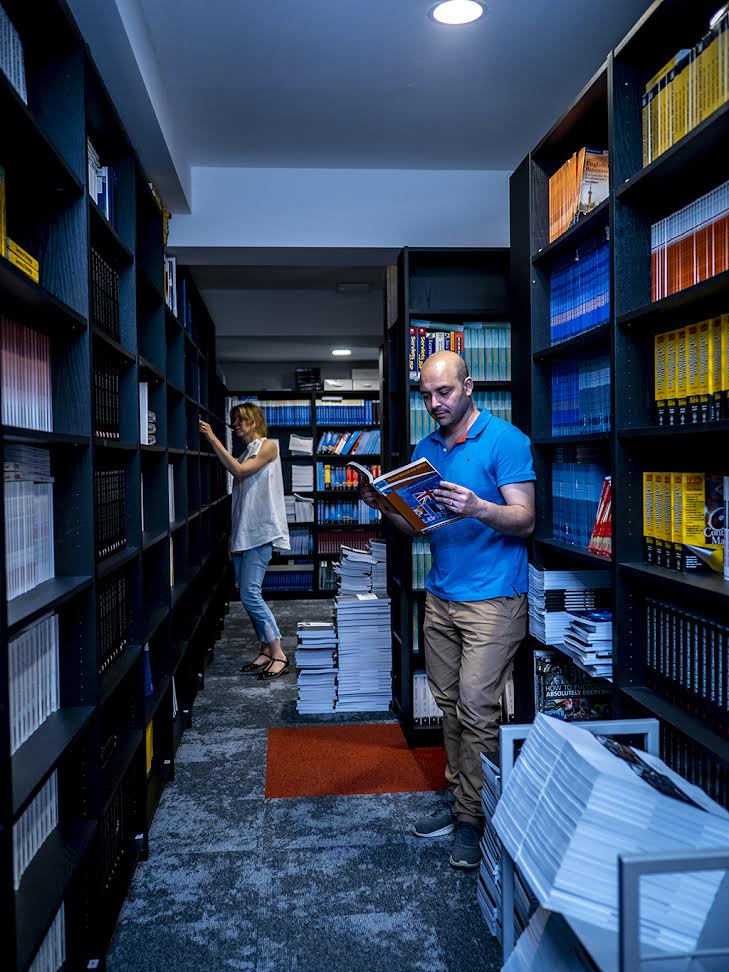
6. How can government best play a part in supporting the expansion of private higher education? What are the current friction points that need to be resolved?
In Croatia, students who study at private institutions pay commercial tuition fees, while those in public Universities pay almost nothing. This does not apply to international students because they pay commercial tuition fees whether they’re studying at a public or private university.
In order for private institutions to be more competitive and in order for students to receive the same treatment, subsidies that are linked to students should be applied, regardless of the ownership of the institution. Also, private institutions are not eligible for EU funds for the development of infrastructure, while state-owned ones are. Less important frictions and differences in approach are either already resolved or will be resolved by the beginning of the next academic year due to upcoming changes in legislation.
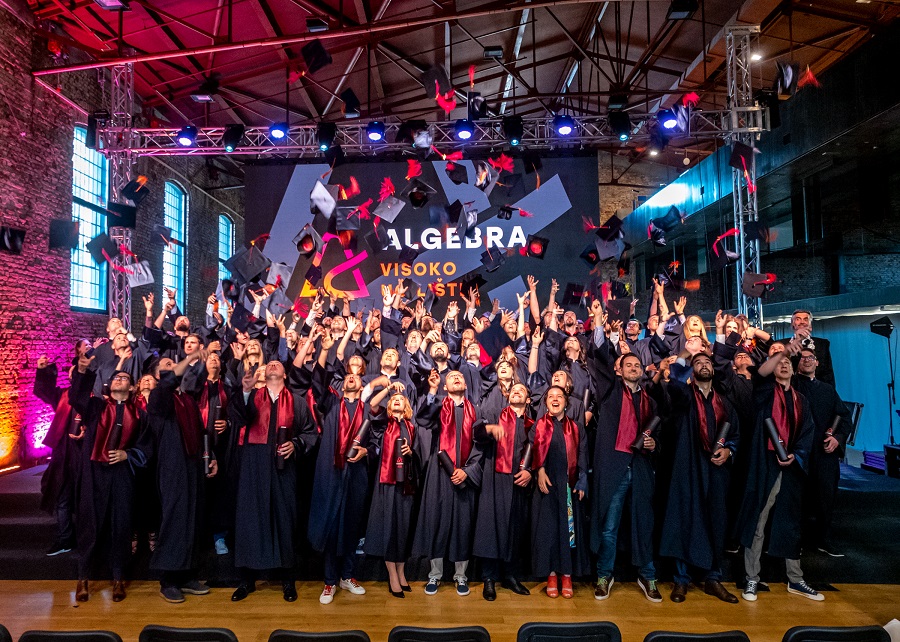
7. How do you see the English-language higher education sector looking in 5-10 years from now.
In my opinion, this is the only sector in Croatian higher education which has the potential to grow. The reason for such an assertion is the fact that Croatia is slowly losing its population (same as many EU countries) due to an ageing population, negative birth rates etc. Currently, this loss is happening at a rate of some 4% per year. We are the only institution in the country which still has an increase in the number of freshmen students at bachelor level of more than 10% each year (this year we have 25% more applications compared to last year). Still, I do not see a way for us to continue to grow indefinitely while numbers of domestic students are decreasing. Therefore, for us and other universities, I think English programmes could be the key to future development. Of course, just delivering teaching in English will be far from enough. Each institution would have to provide high-quality programs, infrastructure, teachers and projects for students and thus compete in the international higher education arena. Some institutions will be successful in this transition to international markets, while I expect most will not.
8. And finally, in a sentence or two, tell us why foreign students should be choosing Croatia for their graduate programme.
Croatia is indeed a live and learn destination – our country has tremendous natural beauties, a hard-to-match cultural heritage, affordable prices and quality higher education delivered in English. We are an EU Member State with a highly competitive, developed and fast-growing digital industry. Croatia awaits and welcomes talented young people to get their degree and to build their careers here.
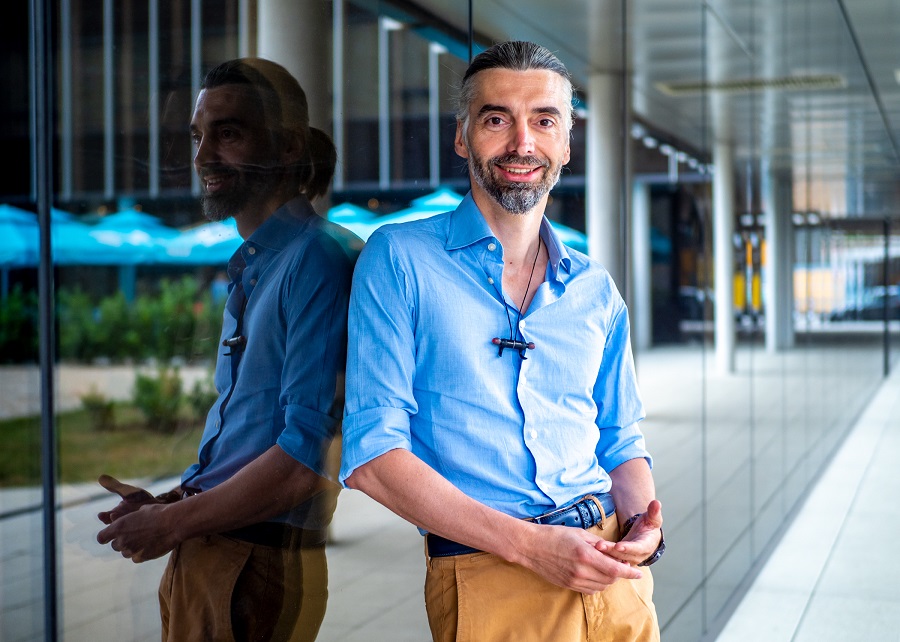
Mislav Balkovic (PhD, Assistant Professor) dean of Algebra University College is an active researcher in the area of National Qualifications Framework and Knowledge management where he participated in a number of national projects including the development of legislation for CROQF and implementation of various policy and regulatory documents in higher, VET and adult education. He is currently working on research in the area of Validation of non-formal and informal learning and the development of modern educational approaches (methodics and didactics). He was representative of Croatian employers (2010 – 2012) in the Advisory Committee for Vocational Education and Training, DG Education and Culture, EU Commission, Bruxelles. Since 2006 he has been intensively involved in the preparation of different types of development projects in the area of education. To this end, he has prepared more than 50 international and national project applications and managed some 30 different projects. Mislav currently acts as the president of the Sector skills council for Electrotechnical and Computing and is President of the Croatian Employers Association - Association of Employers in Education, during (2010 - 2016) period he was an active member of the National Council for Science and Higher education and member of the Government committee for the implementation of education, science and technology Strategy.
You can learn more about the expanding syllabus of Algebra University College on the official website.
You can connect with Mislav Balkovic via LinkedIn.
Interested in taking your higher education journey in Croatia? Check out the Total Croatia Study in Croatia guide.
Meet Foreign Students Choosing Croatian Education: Nirupam Kumar Mundra from India
May 29, 2022 - Among the growing number of foreigners relocating to Croatia, international students are increasingly visible. So who are these foreign students choosing Croatia, and why? In the fifth of a new series, we get the perspectives of life and study in Croatia through the eyes of its foreign students, continuing with Nirupam Kumar Mundra from India.
Among the many foreign tongues heard around the Croatian capital these days is the growing number of students choosing to do their graduate programmes in Croatia. A safe, affordable EU country, with a rapidly expanding programme of high-quality graduate courses in English, with excellent employment opportunities upon graduation, are just some of the reasons for choosing Croatia. And the quality of that education was highlighted recently, as Algebra University College signed an academic partnership agreement with Goldsmiths, University of London (as reported previously on TCN), thereby allowing Algebra students to study under the approved programmes of one of the 500 best universities in the world according to the World University Ranking.
Despite the growing excellence of English-language graduate and post-graduate education in Croatia, the opportunities are not so well known, and so TCN - in partnership with Algebra University College - has compiled an authoritative guide to what you need to know about studying in this beautiful country. Check out the Total Croatia Study in Croatia guide.
Nothing paints the real picture of studying in a foreign country better than the real experiences of students living the day-to-day reality. In a new series on TCN, we meet some of the international students who have fallen in love with Croatia, many of whom plan to stay and work here if they can find employment. We look at the realities of life, why they chose Croatia, and what advice they have for others contemplating studying in Croatia.
Time to meet Nirupam Kumar Mundra from India who is doing a graduate course in Applied Computer Engineering, Game Development at Algebra University College.
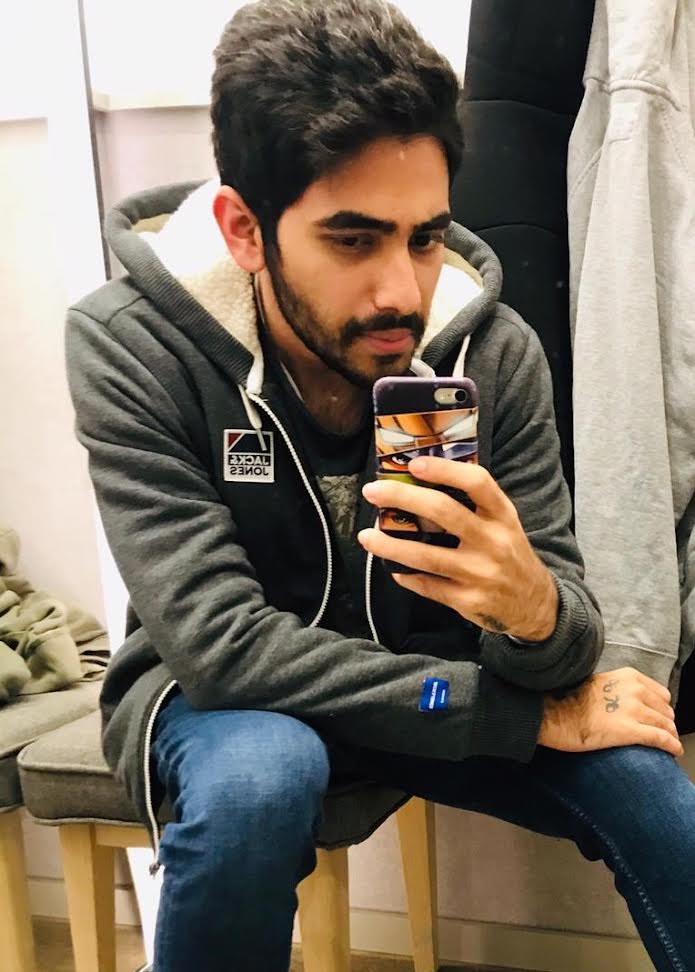
1. You chose to study in Croatia. Tell us what were the main factors in that decision.
I am from India. We don't have any university that offers game development graduate studies. I was looking for universities across Europe, and I found out that the course I am looking for is offered in Zagreb, Algebra University. The main factors I chose for education in Croatia is the curriculum is what I got attracted to most and the tuition fee, very affordable. The reason why Europe – it is rich in culture & people. I feel like I am on another planet, which I don’t want to leave.
2. How is the experience so far? Give us some pros and cons.
About the experience, I love the education system here. We have a vending machine in the university and a lounge. The technology used in the college is jaw-dropping for me.
Pros
- Beautiful city & people.
- Traveling doesn't take much time.
- Very good education system.
Cons
- Difficult to understand while purchasing grocery & food. The description is in Croatian on almost all products.
- Non-Croatian speakers will have difficulty sometimes communicating.
- Residence permit renewal every year.
3. How was your perception of studying in Croatia different from the reality? Give us some things that have surprised you about the experience?
When it comes to studies in Croatia, I can talk all day about things that surprised me. I was amazed how we can sit randomly in class with no gender rules. My university has an application where we can track our grades, attendance, and check exams & news. I love swiping my college ID card when I enter class, it’s for attendance. I know all these things are very common here but not for me. Especially I love the teaching structure. One day of lectures and another day is practice, a perfect way to learn.
4. How easy was it to do the paperwork to enroll in the study programme? Any suggestions to improve things?
Enrolling in the study program is so much easier. If there is a slight difficulty doing it, the university is always available to help us with the process. Usually, students from my place consult third party institutes to apply for universities abroad, but I did it on my own.
5. Tell us a little about the accommodation and the cost of living.
I started paying 500 Euros when I first came here, due to no exposure about the city and houses here. Later, I started learning things and got myself a new place paying only 250 Euros/ month. Some of my friends from India paid 180 euros/ month (it Includes rent & utilities).
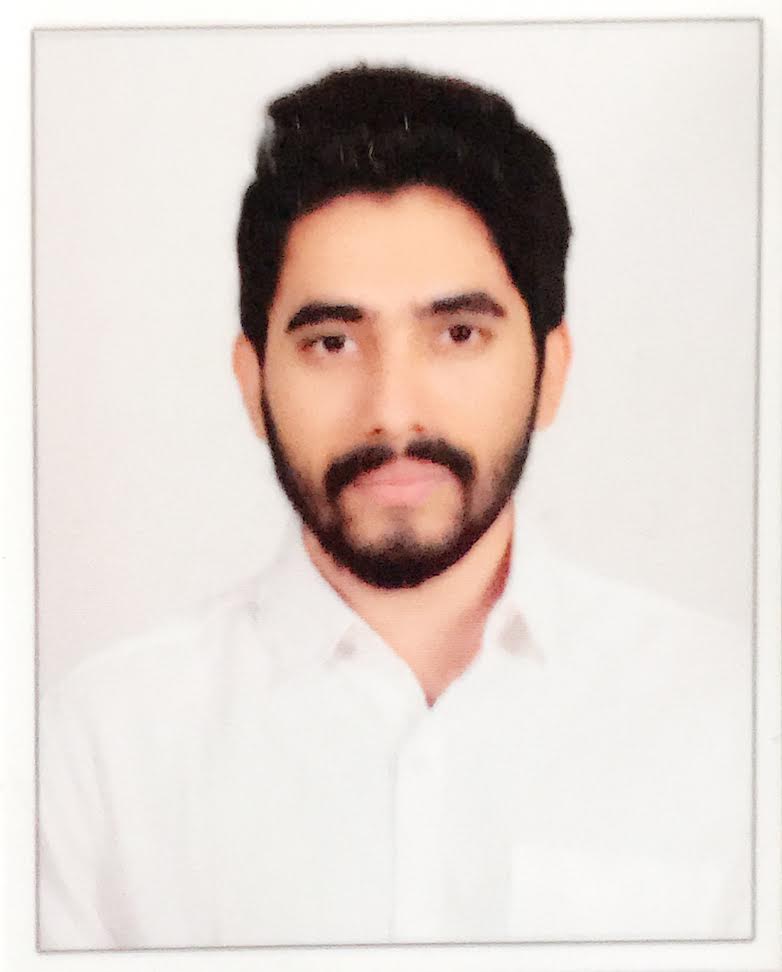
6. Finding work is a key priority for students, both to help finance the study, but also upon graduation. How hard have you found it to find work, and what are the main obstacles?
I chose a different career path for my master studies. I must start from scratch, so I’ve decided to dedicate all my time to the university, so I haven’t made an attempt to apply for a job here. I think I’m not the right person to talk about this question.
7. Tell us about the Croatian lifestyle and making friends. How has it been for you?
What I see is making friends here is easy, everyone here is polite, friendly & welcoming. In my three years in Zagreb, I never encountered any racism or toxicity from students or anyone else.
8. Do you plan to (try and) stay in Croatia when your studies finish? Why/not?
I plan to find work here. The career I choose, which is game design, has a few good opportunities in Croatia. Most importantly I love Europe.
9. Three things you have enjoyed most about your experience studying in Croatia?
Festival arrangements & outdoor parties with music and decorated with beautiful lights.
Going out on trips to the coastal side of Croatia is the best.
Parks & libraries – they look like movie locations.
10. What advice do you have for people who are considering studying in Croatia?
It’s going to be challenging in the first few months, I will tell you one thing if you get to know Croatia and its people: it is worth living here. Since Croatia is not in the Schengen area zone (but it will be soon) with a Croatian resident permit, you can only travel to Bulgaria, Romania, and Cyprus, which I consider a limited option for few non-Europeans. I highly recommend learning a few Croatian words. It would help in a situation like purchasing food, groceries, also for travel & shopping.
Are you an international student on a graduate or post-graduate course in Croatia, who would like to be featured in this series? Contact us on This email address is being protected from spambots. You need JavaScript enabled to view it. Subject Study.
To learn more about the options for studying in Croatia, check out the Total Croatia Study in Croatia guide.
For more information on courses offered by Algebra University College, visit the official website.
Meet Foreign Students Choosing Croatian Education: Nicholas Silva from Brazil
May 17, 2022 - Among the growing number of foreigners relocating to Croatia, international students are increasingly visible. So who are these foreign students choosing Croatia, and why? In the third of a new series, we get the perspectives of life and study in Croatia through the eyes of its foreign students, continuing with Nicholas Silva from Brazil.
Among the many foreign tongues heard around the Croatian capital these days is the growing number of students choosing to do their graduate programmes in Croatia. A safe, affordable EU country, with a rapidly expanding programme of high-quality graduate courses in English, with excellent employment opportunities upon graduation, are just some of the reasons for choosing Croatia. And the quality of that education was highlighted recently, as Algebra University College signed an academic partnership agreement with Goldsmiths, University of London (as reported previously on TCN), thereby allowing Algebra students to study under the approved programmes of one of the 500 best universities in the world according to the World University Ranking.
Despite the growing excellence of English-language graduate and post-graduate education in Croatia, the opportunities are not so well known, and so TCN - in partnership with Algebra University College - has compiled an authoritative guide to what you need to know about studying in this beautiful country. Check out the Total Croatia Study in Croatia guide.
Nothing paints the real picture of studying in a foreign country better than the real experiences of students living the day to day reality. In a new series on TCN, we meet some of the international students who have fallen in love with Croatia, many of whom plan to stay and work here if they can find employment. We look at the realities of life, why they chose Croatia, and what advice they have for others contemplating studying in Croatia.
Time to meet Nicholas Silva from Brazil who is doing a graduate course in Applied Computer Engineering, Game Development at Algebra University College.
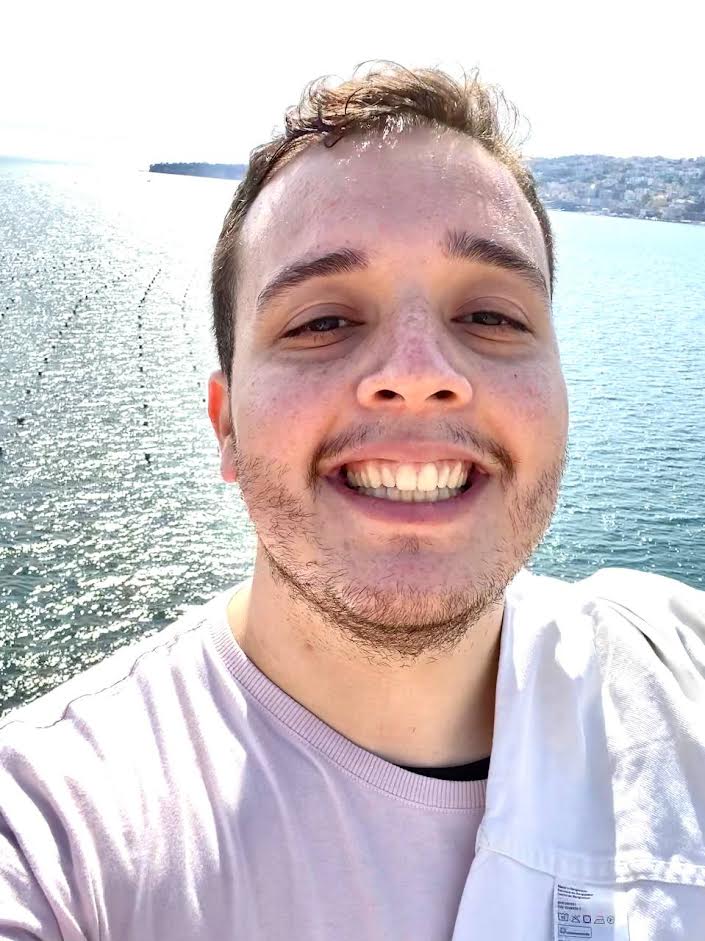
1. You chose to study in Croatia. Tell us what were the main factors in that decision.
To be honest, Croatia was never my first option, not because I didn't think the country was good enough, but because when we think about exchange programs we always think about the big countries like USA, France, UK etc.
But I've always had an adventurous spirit and I really wanted to go to a place that not everyone knew, I was researching more about the countries in Europe and I came across Croatia in one of my searches, I had already heard about the country when it had the World Cup in Brazil in 2014 and the checkered shirts of the Croatian soccer team had caught my attention.
I started researching more about the country, the culture, the cities, the cost of living, and it ended up being very interesting to me. What was decisive for me were the safety of the country, the possibility to study and work, the chance to get to know the Adriatic coast and all the benefits of being in the European Union as well.
2. How is the experience so far? Give us some pros and cons.
My experience has been fantastic. I really like everything that happens here, the coziness of being a small country but at the same time seeking to internationalize itself.
The climate is very diverse and for me this is good, I have already had negative temperatures and now in spring we have had days of 30 degrees Celsius, not everyone likes it, but it is very good for me.
The possibility of being on the coast in less than 4 hours by car is very good, to be able to escape from routine on a weekend to take a dip in the sea and recharge the batteries.
The people are very receptive and curious about outsiders, I have made great friends here and feel at home already.
The cost of living, although it has increased a little recently, is still much better compared to other places in Europe.
The food is very good and there is so much gastronomic richness that every day you can eat something totally new if you want.
The negative points are that the bureaucracy is a little confusing when it comes to immigration documentation, there is a lot of disconnected information, but the Ministry of the Interior always answered my e-mails and the police responsible for my temporary residency process always clarified, but it causes a lot of insecurity for those who will apply for the first time.
The public transportation, despite reaching several points in the city (I talk about Zagreb here), could be improved.
The language for me is the main barrier, most people speak English, but obviously you are restricted to international environments if you do not make an effort to learn Croatian which is a very challenging language to learn. And also there are not many affordable language courses.
3. How was your perception of studying in Croatia different from the reality? Give us some things that have surprised you about the experience?
I am studying my Masters in Game Development at Algebra College University and have a very good experience studying.
But what struck me the most is that the teacher-student relationship is totally direct and close, the teachers are very easy to contact and are very accessible to help you with projects and questions.
The relationship with the other departments of the college is also very easy, it's like you know everyone and everyone knows who you are there, it seems that everyone is aligned to the same goals.
This may be just my personal experience at Algebra University, but I really like that I can send an email or go to the international secretary's office and know that I will be well taken care of.
The study relationship is very focused on the employability of their students, so their main metric is how many students are employed during and after their course, so it's almost guaranteed that you'll have a good job after graduating and the many possible student job opportunities in Croatia.
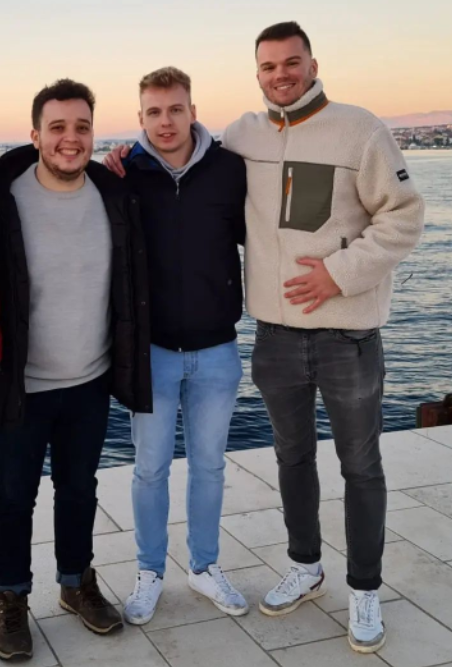
4. How easy was it to do the paperwork to enroll in the study programme? Any suggestions to improve things?
The application documentation for my master's degree was no different from other countries, the process was totally online, with interviews with professors over the internet and everything according to the institutional website schedule.
Algebra was always very willing to help me during the documentation for the application (and any other questions I had, which was a lot...) for the temporary residence, to get the OIB, and everything else that was necessary for my arrival and I have no complaints, it was all smooth.
The documentation for application for temporary residence depends a lot on which country you are coming from, if you need a visa before coming to the country, in short, my process took less than 3 months to get my temporary resident card but I know that there are people who had to return to the country for not being able to deliver all the requested documents.
5. Tell us a little about the accommodation and the cost of living.
Regarding accommodation, I was lucky because I found a flatshare on a Croatian equivalent of Craiglist, so before even arriving in Croatia, I already had my contract for a 12-month rental of a room in a shared house with other Croatians 25 minutes walking distance from my university campus.
The only bad part was that when I was in Brazil, every time I contacted the apartment advertisers they either distrusted me because I was from far away or they did not speak English.
I know of other international students who had problems with scammers but my experience in general wasn't bad.
6. Finding work is a key priority for students, both to help finance the study, but also upon graduation. How hard have you found it to find work, and what are the main obstacles?
I know that there are many jobs for students that are not filled because either there is no interest or because it requires knowledge of the Croatian language which is difficult among international students.
I got a very good job in 2 months in the business support area, I got it because I speak 4 languages fluently and that made it easier for me to find a job.
But it is a fact that if you don't know the language or don't have knowledge of demand it will be difficult to find something at first, but there are many international companies where the administrative language is English. But focus on your important skills for the job market and you will find something.
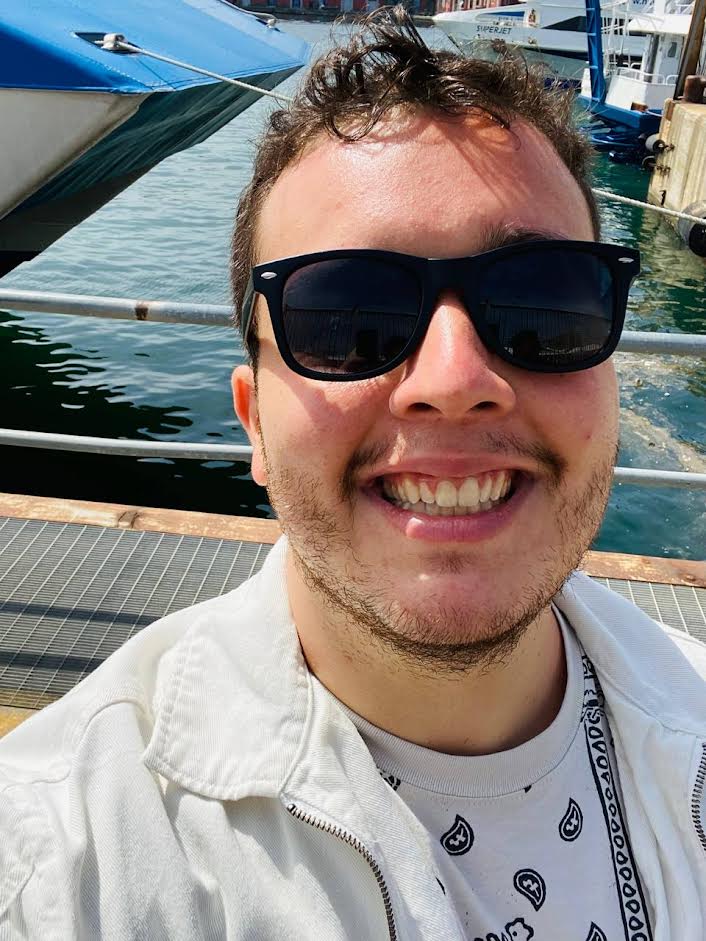
7. Tell us about the Croatian lifestyle and making friends. How has it been for you?
I can’t complain.
The Buddy Program from my university introduced me to the Erasmus students and also Croatian people willing to know more people, now I have really good Croatian friends.
And what beer and rakija bring together, stay together.
8. Do you plan to (try and) stay in Croatia when your studies finish? Why/not?
I do. I have a good life here and I believe if I can stay to pay back what I receive from this awesome country I would very much like to do it. But for now I will focus on my studies and work, after that, I will see what are my possibilities.
9. Three things you have enjoyed most about your experience studying in Croatia?
1 – People
2 – Trips
3 – Cultural exchanges
4 – Rakija
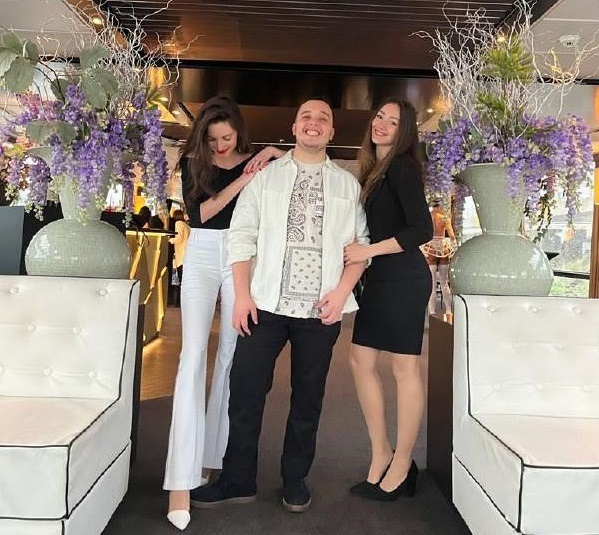
10. What advice do you have for people who are considering studying in Croatia?
Croatia is a great place to visit, to study, but studying abroad will always put your limits on the edge and will require dedication and patience to get what you want.
Are you an international student on a graduate or post-graduate course in Croatia, who would like to be featured in this series? Contact us on This email address is being protected from spambots. You need JavaScript enabled to view it. Subject Study.
To learn more about the options for studying in Croatia, check out the Total Croatia Study in Croatia guide.
For more information on courses offered by Algebra University College, visit the official website.
Meet Foreign Students Choosing Croatian Education: Elizabeth Borysiuk from Ukraine
April 24, 2022 - Among the growing number of foreigners relocating to Croatia, international students are increasingly visible. So who are these foreign students choosing Croatia, and why? In the third of a new series, we get the perspectives of life and study in Croatia through the eyes of its foreign students, continuing with Elizabeth Borysiuk from Ukraine.
Among the many foreign tongues heard around the Croatian capital these days is the growing number of students choosing to do their graduate programmes in Croatia. A safe, affordable EU country, with a rapidly expanding programme of high-quality graduate courses in English, with excellent employment opportunities upon graduation, are just some of the reasons for choosing Croatia. And the quality of that education was highlighted recently, as Algebra University College signed an academic partnership agreement with Goldsmiths, University of London (as reported previously on TCN), thereby allowing Algebra students to study under the approved programmes of one of the 500 best universities in the world according to the World University Ranking.
Despite the growing excellence of English-language graduate and post-graduate education in Croatia, the opportunities are not so well known, and so TCN - in partnership with Algebra University College - has compiled an authoritative guide to what you need to know about studying in this beautiful country. Check out the Total Croatia Study in Croatia guide.
Nothing paints the real picture of studying in a foreign country better than the real experiences of students living the day-to-day reality. In a new series on TCN, we meet some of the international students who have fallen in love with Croatia, many of whom plan to stay and work here if they can find employment. We look at the realities of life, why they chose Croatia, and what advice they have for others contemplating studying in Croatia.
Next up, Elizabeth Borysiuk from Ukraine, a graduate student in Creative Market Communications Management at Algebra University College.
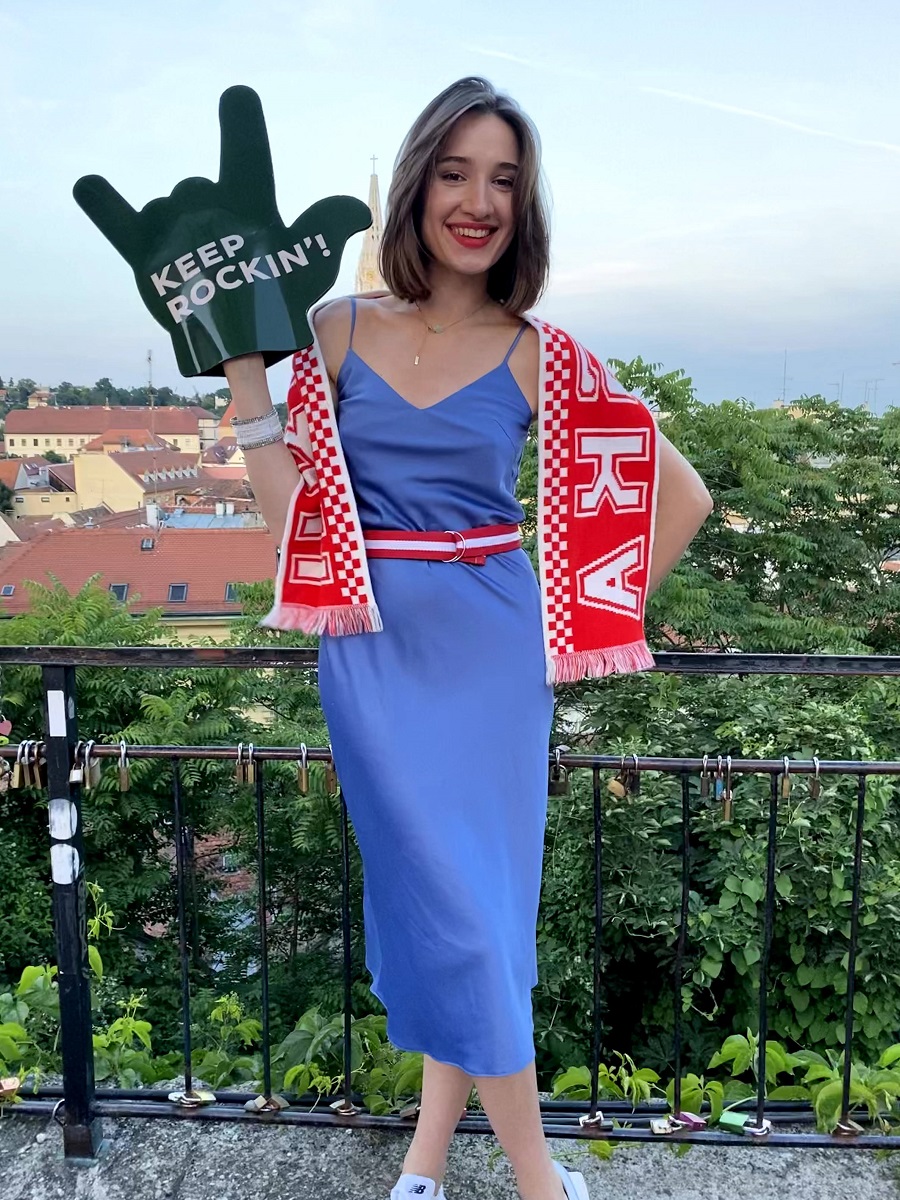
1. You chose to study in Croatia. Tell us what were the main factors in that decision.
When I was choosing a direction for my master’s degree the 2 winning points for Croatia were: location and international programs. This country is well-known among students in the western world and not only for great parties and beautiful views. I was impressed by the range of international connections and experiences that local universities are offering. It works both ways and the diversity is growing every new year. I thought it would be a great opportunity to study the same subjects from different perspectives, creating a diverse network while having a chance to discover the most beautiful country in the Balkan region.
2. How is the experience so far? Give us some pros and cons.
Right now being at the stage of graduation I must admit that the third winning point about studying in Croatia is the educational system and how strong it is. This is not a secret that many Croatian students are getting jobs in the most prestigious fields around Europe, and the key to success is laying in the school base. For incoming students it is both pros and cons because even these days we hardly can handle the Croatian style of both leisure time and study, so we are always struggling to choose the one (laughing). Being a student of design and communications management in Algebra University College, I am studying among colleagues who are leading complex projects in design agencies and our professors are CEO or creative directors with a full range of real-life award-winning cases. This is not what I expected coming here, but can’t be happier about such an open-minded approach.
From the biggest challenge these days I can highlight the application process for a residence permit. Even though it is well-known that bureaucracy and governmental establishments are still meant to be improved, sometimes it can become very complicated due to miscommunications and waiting time, so students are getting into inconvenient situations. The most interesting is that there is no one specific reason, everyone has their trouble case.

3. How was your perception of studying in Croatia different from reality? Give us some things that have surprised you about the experience?
I had mixed feelings about Croatia both from a master student and traveller perspective. Knowing that the central attention is drawn to coastal tourism, as well as being educated about the history and the globalization influence on local youth, I expected to learn the basics, travel to see some islands and move forward to another country. But already after my first visit, I felt like this is my new home and I want to stay. Hardly anyone can resist seeing the most beautiful coast in Europe, but I was touched by local people and the culture itself. I got deeply connected with the values and the charm of the Croatian style of living. As in any other country, there are surely some flaws, but it has nothing to compare with seeing how people can cherish the most important things: life, nature, freedom.
4. How easy was it to do the paperwork to enrol in the study program? Any suggestions to improve things?
In my university, it was a very organized comfortable process. Coming through a strict selection, both professor and I understood the responsibility and the level of educational background required, but after we settled down all agreements at the interview, the collection of documents and help with legal papers work has been fully provided by the international office. However such documents as Recognition of foreign education qualifications in Croatia and the process of receiving it can be still confusing for the incoming students as well as the process of getting a transport card, that can be issued only if you pay a visit in private ( on those rare working days and hours) to the transport office where workers rarely speak English.

5. Tell us a little about the accommodation and the cost of living.
It is definitely not the cheapest country in Europe. Even though Croatia has its own currency, I must admit - prices are quite high compared with other south-eastern countries. The most expensive turns to be groceries and market food. Costs are like in Austria, however, the quality of products is much higher, I must admit. After that comes spending on car gas and service, but this is an essential in Croatia if you need to travel.
One point that I like: here rarely happens any problems to finding accommodation within your budget. Such cities like Zagreb, Rijeka and Split have all facilities for students, starting from dormitories to big apartments for 5-8 persons. In Zagreb people are quite open when it comes to offering accommodation to foreigners, most of the apartments in the central area are well-equipped and restored, and you can rarely find fraud cases. However, it is important to double-check the bills for maintenance and utilities and discuss with the owner the price, since it can definitely hit your budget, especially during wintertime. What is really useful is a big community in social media groups for students, that helps with the first steps of relocation.
6. Finding work is a key priority for students, both to help finance the study, but also upon graduation. How hard have you found it to find work, and what are the main obstacles?
This is a part of a conversation that is definitely waiting for improvements. For foreign students who don’t know the language - it is a double challenge. Firstly, because a foreigner can’t apply for a full-time job while studying when a Croatian student can. It is meant to be changed at the nearest time, but so far the only legal option is a part-time job or an internship. Secondly - the language itself. Most of the companies and agencies are working locally, meaning using the Croatian language within the process of work. It can be hard for a student to get adapted to such an environment, however, there is much more luck in the IT industry. Zagreb and Rijeka are hosting departments of big enterprises, who are looking for people with 2+ European languages, so it is a question of time and luck. In the case of the design and marketing field, most of the time they prefer to hire experienced Croatians, or those that have been referred by connections ( which is a common thing in Croatia). Though the most confusing point for me is how low the salary rate, and how some fields are being highly underpaid.
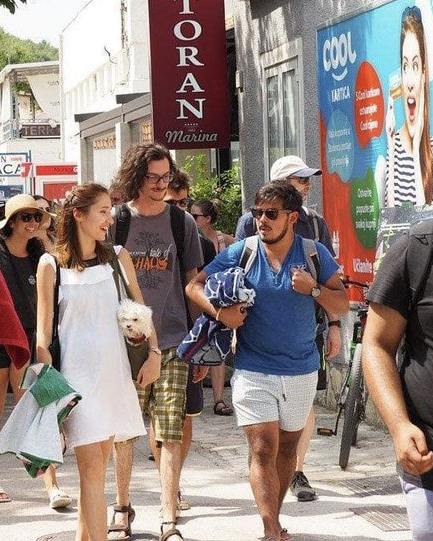
7. Tell us about the Croatian lifestyle and making friends. How has it been for you?
This is one of the most valuable parts of my life in Croatia - the people and community I belong to. Coming from Ukraine, this country is the 4th place that I have lived and I never felt more accepted anywhere before. What to say, if I managed to start speaking in Croatian only after 4 months of being here and felt confident enough to use it daily already in 9 months. Of course, there have been different situations, because Croatian people still have a lot of character on a side with "polako" living, but it only helped me to become more stable and stronger with identity. For the last 3 years, I have met my best friends and soul companions from Zagreb, Rijeka, Cres, Mali Losinj, Canada, France, Israel, Germany and many more. The amount of fun events throughout the year is overwhelming. There were no problems with making connections, since if anyone has been discovered with a bad mood - Croatian people can quickly shift the vibes. Locals don’t like it when someone is behaving weirdly or gloomy, that’s important to know.
8. Do you plan to (try and) stay in Croatia when your studies finish? Why/not?
It will certainly depend on job offers and income rate in my field since currently, this is the most important factor. But speaking long-term - yes, I would love to stay and call this place my home, while contributing to the development of the country. I and my twin sister were planning to open an art cafe to attract the creative youth of Zagreb and let them collaborate. Coming from a rich background of coffee&breakfast cult in Kyiv, we want to bring it up here, while giving enough space for designers and artists to present their works. We believe that the Croatian service market still has where to grow, what to discover and offer and it is a great segment to invest into.
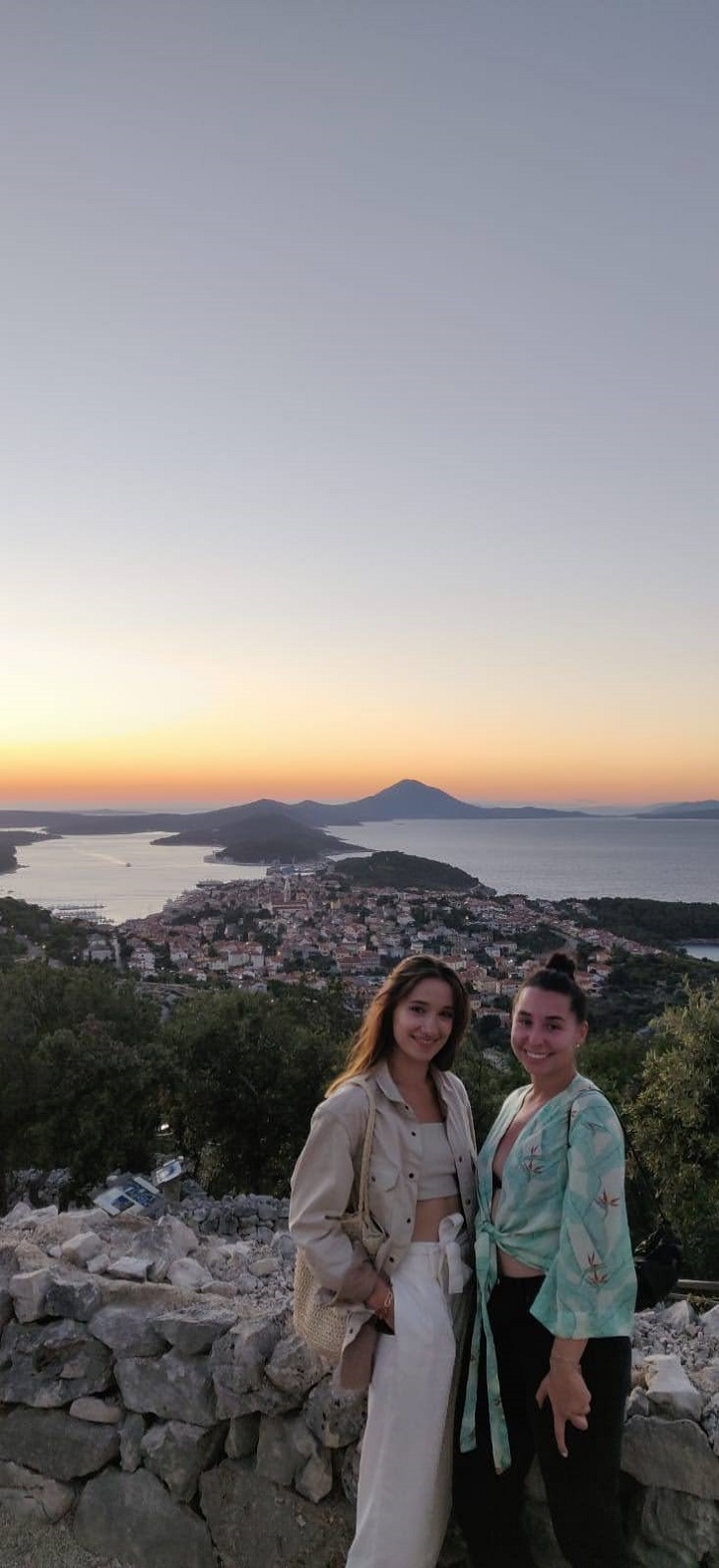
9. Three things you have enjoyed most about your experience studying in Croatia?
For the first point, I won’t be very original saying travel and nature. It is the richest country in my experience when it comes to climate and sightseeing. The second one would be my professional network and the diversity of people I met during my study, locals and foreigners - priceless knowledge and connections. And third is a local lifestyle. I adore watching after people on the street, how they drink coffee, taste wine, talk loudly, laugh and enjoy the moment. Locals blame this for being jobless and lazy, but I see it as the highest level of hedonism, exactly where genuine happiness of life is laying.
10. What advice do you have for people who are considering studying in Croatia?
I would say that there is no heaven on Earth and don’t expect that your everyday life will look like your last summer trip to Split. However if you are ready to stay humble, open, learn how to take things easy and slow - this is the country for you. Croatia is full of surprises, and I am not even speaking about the islands and the sea. Be ready to get things done your way while being innovative and daring to study a lot. And finally, be ready to have sleepless nights and long midday coffees - it is an essential here.
Are you an international student on a graduate or post-graduate course in Croatia, who would like to be featured in this series? Contact us on This email address is being protected from spambots. You need JavaScript enabled to view it. Subject Study.
To learn more about the options for studying in Croatia, check out the Total Croatia Study in Croatia guide.
For more information on courses offered by Algebra University College, visit the official website.
Meet Foreign Students Choosing Croatian Education: Mohamed Hafez from Egypt
April 1, 2022 - Among the growing number of foreigners relocating to Croatia, international students are increasingly visible. So who are these foreign students choosing Croatia, and why? In the second of a new series, we get the perspectives of life and study in Croatia through the eyes of its foreign students, continuing with Mohamed Hafez from Egypt.
Among the many foreign tongues heard around the Croatian capital these days is the growing number of students choosing to do their graduate programmes in Croatia. A safe, affordable EU country, with a rapidly expanding programme of high-quality graduate courses in English, with excellent employment opportunities upon graduation, are just some of the reasons for choosing Croatia. And the quality of that education was highlighted recently, as Algebra University College signed an academic partnership agreement with Goldsmiths, University of London (as reported previously on TCN), thereby allowing Algebra students to study under the approved programmes of one of the 500 best universities in the world according to the World University Ranking.
Despite the growing excellence of English-language graduate and post-graduate education in Croatia, the opportunities are not so well known, and so TCN - in partnership with Algebra University College - has compiled an authoritative guide to what you need to know about studying in this beautiful country. Check out the Total Croatia Study in Croatia guide.
Nothing paints the real picture of studying in a foreign country better than the real experiences of students living the day-to-day reality. In a new series on TCN, we meet some of the international students who have fallen in love with Croatia, many of whom plan to stay and work here if they can find employment. We look at the realities of life, why they chose Croatia, and what advice they have for others contemplating studying in Croatia.
Next up, alumni Mohamed Hafez from Egypt, alumni, who studied Digital Marketing at graduate level at Algebra University College.
1. You chose to study in Croatia. Tell us what were the main factors in that decision.
First, because I found the exact type of degree that I wanted to acquire at that time, the curriculum was exactly how I wanted it to be. Second, I knew that Croatia is a beautiful country that has so many things to do and enjoy. Third, maybe because Croatia is not so far from home and also the weather is relatively very good here compared to other European countries.
2. How is the experience so far? Give us some pros and cons.
Great experience, lots of things learnt academically, great support from my professors, mentors, colleagues, and friends. The two main cons of my trip are the language barrier, despite the fact that English is spoken widely in Croatia, speaking Croatian would have boosted my social experience. The second con is handling the paperwork and dealing with the red tape.
3. How was your perception of studying in Croatia different from the reality? Give us some things that have surprised you about the experience?
I didn’t really have any sort of perception prior to starting the experience and going to Croatia, I just connected with Algebra and I felt it is the place that suits me, given that it is a very technical and modern school. Even so, I was surprised by how welcoming, supportive and friendly the people here are.
4. How easy was it to do the paperwork to enroll in the study programme? Any suggestions to improve things?
I cannot recall the enrollment process but I would suggest giving the student resident permit for the length of the studies instead of the yearly renewals that take months to accomplish.
5. Tell us a little about the accommodation and the cost of living.
I cannot say the cost of living is much different from other European cities but definitely, the accommodation and apartment rentals are much less expensive which is a big thing for students.
6. Finding work is a key priority for students, both to help finance their study, but also upon graduation. How hard have you found it to find work, and what are the main obstacles?
I would say it is not easy to find a job in Croatia as a foreign student, especially the exact job you want, however, when you put enough effort into it you would probably reach it eventually. I would say the main obstacle is the language barrier.
7. Tell us about the Croatian lifestyle and making friends. How has it been for you?
The best things to enjoy as a student in Croatia is the lifestyle, reading a book and drinking a coffee for 3 hours on a great sunny day uptown. Enjoy the grocery shopping at the Plac where there is all the homegrown and homemade products. Make friends easily and hang out at the skatepark.
8. Do you plan to (try and) stay in Croatia when your studies finish? Why/not?
Yes because as long as I am having a good experience and I am able to grow personally and professionally then I have no reason to relocate.
9. Three things you have enjoyed most about your experience studying in Croatia?
First, the friends I made, the colleagues and professors I connected with are the best thing I enjoyed in my experience. Second, the mountains, the forests and the sea. Third, coffee, food, and beer.
10. What advice do you have for people who are considering studying in Croatia?
I advise them to prepare, research, and plan well, and discover the potential of the fields they want to study in Croatia, their unique points. Try to learn some Croatian language, the sooner the better in order to get the most out of the experience.
Are you an international student on a graduate or post-graduate course in Croatia, who would like to be featured in this series? Contact us on This email address is being protected from spambots. You need JavaScript enabled to view it. Subject Study.
To learn more about the options for studying in Croatia, check out the Total Croatia Study in Croatia guide.
For more information on courses offered by Algebra University College, visit the official website.
Meet Foreign Students Choosing Croatian Education: Luis Vasquez from Venezuela
March 21, 2022 - Among the growing number of foreigners relocating to Croatia, international students are increasingly visible. So who are these foreign students choosing Croatia, and why? In the first of a new series, we get the perspectives of life and study in Croatia through the eyes of its foreign students, starting with Luis Vasquez from Venezuela.
Among the many foreign tongues heard around the Croatian capital these days is the growing number of students choosing to do their graduate programmes in Croatia. A safe, affordable EU country, with a rapidly expanding programme of high-quality graduate courses in English, with excellent employment opportunities upon graduation, are just some of the reasons for choosing Croatia. And the quality of that education was highlighted recently, as Algebra University College signed an academic partnership agreement with Goldsmiths, University of London (as reported previously on TCN), thereby allowing Algebra students to study under the approved programmes of one of the 500 best universities in the world according to the World University Ranking.
Despite the growing excellence of English-language graduate and post-graduate education in Croatia, the opportunities are not so well known, and so TCN - in partnership with Algebra University College - has compiled an authoritative guide to what you need to know about studying in this beautiful country. Check out the Total Croatia Study in Croatia guide.
Nothing paints the real picture of studying in a foreign country better than the real experiences of students living the day to day reality. In a new series on TCN, we meet some of the international students who have fallen in love with Croatia, many of whom plan to stay and work here if they can find employment. We look at the realities of life, why they chose Croatia, and what advice they have for others contemplating studying in Croatia.
We begin with Luis Vasquez from Venezuela who is doing a graduate course in Applied Computer Engineering at Algebra University College, with a sub-specialization in Software Engineering.
1. You chose to study in Croatia. Tell us what were the main factors in that decision.
Oh, there were definitely three main factors in my decision. First off, I found a graduate program that matched my goals in terms of skills I wanted to develop as I advanced in my career. Secondly, I have loved Zagreb ever since I came here as a tourist in August 2019 and staying in Croatia for a longer period seemed great to me. Last but not least, my family lives in Ljubljana, so being 2,5 hour by train from them was a no-brainer.
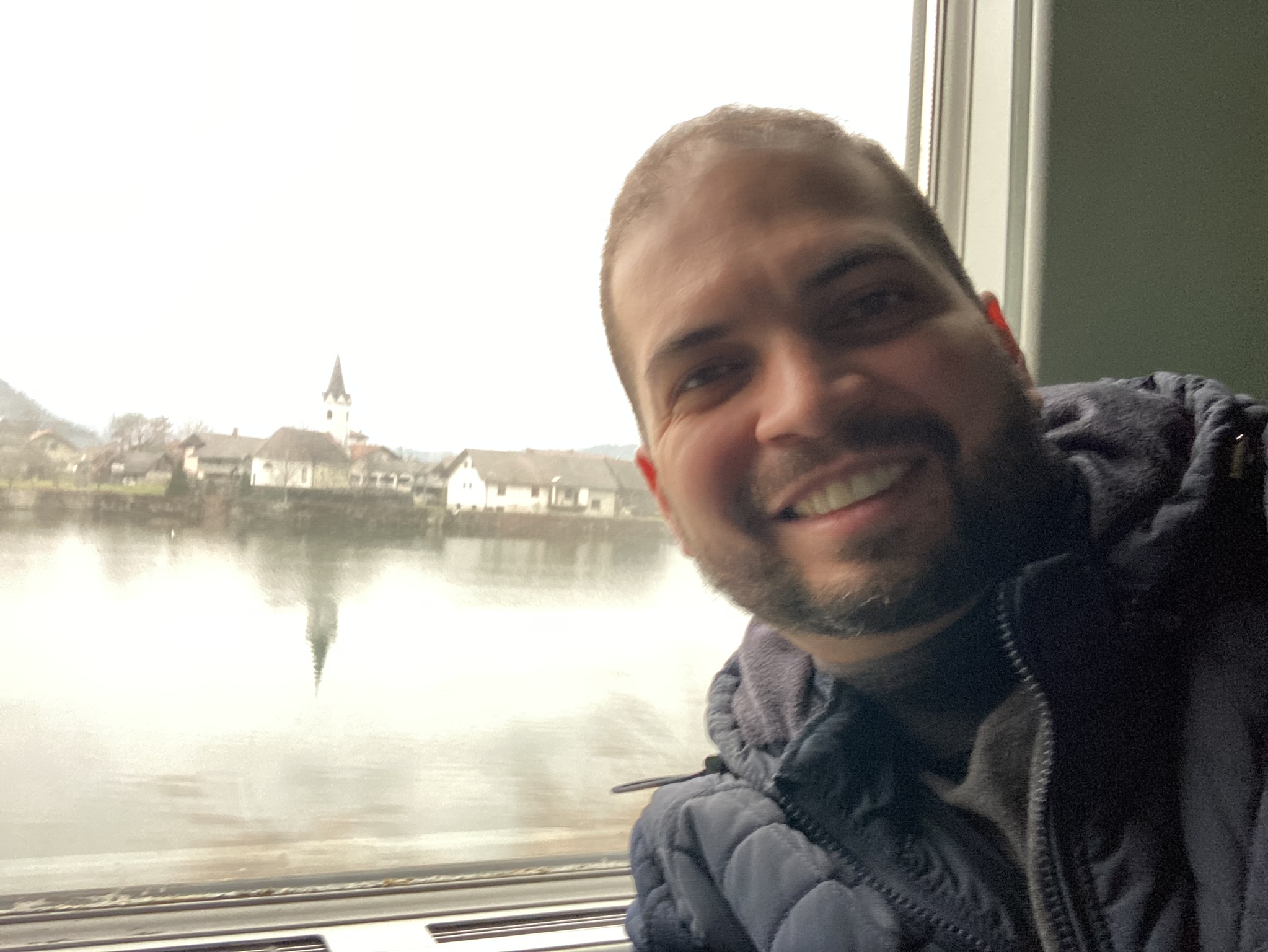
2. How is the experience so far? Give us some pros and cons.
From my perspective, my experience in Croatia has been very positive. Although I was already familiar with Zagreb before I enrolled in my master's studies, the transition was smooth for me, even as a newcomer. There are quite a few things that make Croatia a very special place to quickly adapt to it.
Pros:
- Croatia is very safe. In Zagreb, which is the city I live in, you can walk at any time of the day and not face any threat or feel unsafe at all.
- The transportation system is excellent and inexpensive. The city is interconnected with trams and there are also buses that take you to more remote areas.
- Many cafes, bars, museums and a large natural park (Maksimir) where you can run, walk or simply reconnect with nature.
- Enjoy beautiful views of most of the architecture and buildings in the city.
- Plenty of people speak English, so communicating with locals should not be a problem. Some of them speak German, Italian or Spanish, among other languages.
- Relatively speaking, the cost of living is low, although rents in Zagreb can be much higher than in other cities in Croatia.
Cons:
- Red tape is the rule in many places, especially in public institutions, so be prepared for a lot of paperwork if you are not an EU citizen.
- In some cases, the information you receive in public or private institutions is scarce or unclear, and instead of that, the real information comes from word of mouth. This often leads to inconveniences such as administrative problems, missed deadlines, additional paperwork, extra payments, fines, etc. It's usually not your fault, but you still pay the price for missing information or even receiving incorrect information from an official source.
- Croatian language can be very tricky to master if you're not familiar with any Slavic language. It is quite an interesting language, but it takes a lot of effort to catch up with it. However, this is not mandatory at all if you're only enrolling in an English language program. I have only an A2.1 level and in very few situations I needed to communicate with someone in Croatian.
- Croatia may seem less open than other countries if you're coming from a multicultural environment
- Many police officers don’t speak English, or at least, they prefer to speak in Croatian. However, if the communication for your residence permit application is by email, an online translation tool will save you.
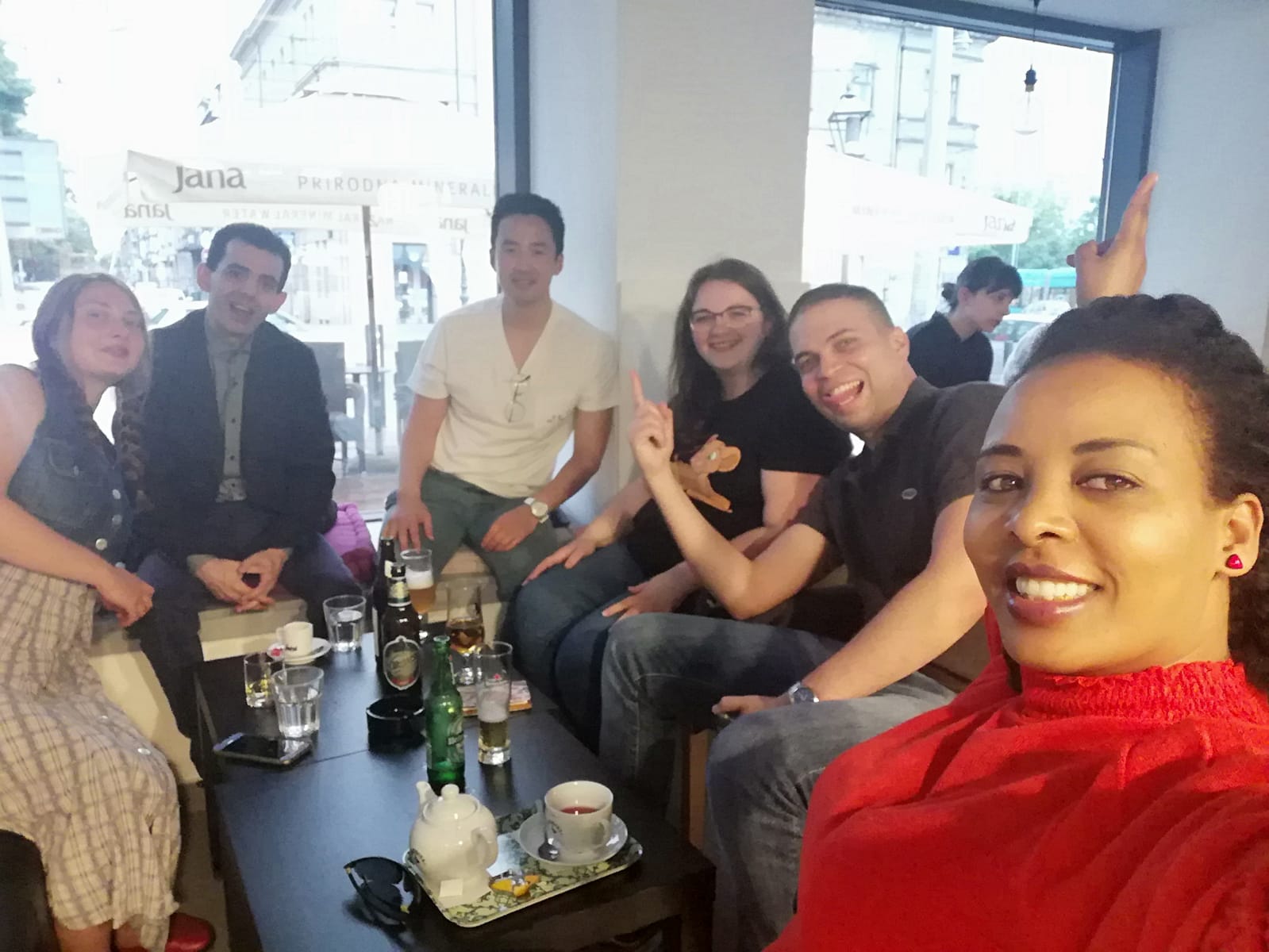
3. How was your perception of studying in Croatia different from the reality? Give us some things that have surprised you about the experience?
I was very happy when I realized the high quality of education in the study program that I chose. Most of the teachers in my program are very knowledgeable and I personally believe that some of them are rock stars in their fields. They are also very approachable and some of them go the extra mile and are so readily available to you that I will honestly ask them for advice on time management skills. That is probably the most remarkable feature that I can highlight from my experience as a student, but I was also surprised by the large number of areas covered in my program. It also motivates me a lot to know that my classmates are very committed to their studies, although it makes sense to find a higher level of commitment in graduate studies.
4. How easy was it to do the paperwork to enroll in the study programme? Any suggestions to improve things?
Regarding the procedures to enroll in my university, Algebra University College, the process was clear and simple from the very beginning. It also helped that I had all my academic documents and the requirements at hand. My enrollment process was possible thanks to the valuable support I received from the International Office at my University, as they sped up the review of my application so that I would receive an acceptance letter on time and I could submit my documents to the police to apply for a residence permit.
The story with my residence permit application was quite different. Honestly, in 3 out of 4 residency permit applications, I was fortunate to have police officers who were very polite and even friendly, but in this case, I needed to hire an immigration lawyer to help me with this matter, as things did not progress well with the police officer reviewing my application. In the end, my lawyer managed to forward my application to the Ministry, after which I received the approval.
I think it would be great to make the official information regarding immigration in Croatia more available in English. Perhaps supported by some FAQ section by type of visa. Fortunately, there are many resources online that I have collected during my stay in the country, but still, it is a bit risky when you receive information from an official source and you cannot validate it with some official written sources, as the information might be scattered or not available in English.
5. Tell us a little about the accommodation and the cost of living.
My spending patterns have changed over time. When I came to Zagreb as a tourist, I found a private room with a shared bathroom in Dubrava and started paying 1,700 Kn (~ $ 270) per month. At that time, I estimate an average spending of $ 650 per month, ordering food about 40% of the time. After I decided to stay here longer, I started spending more, so now I pay around 3,000 Kn per month (rent + utilities) for a 2 bed + 1 bath apartment, an additional payment of ~ 590 kN (or $ 89) for health insurance (mandatory for third country citizens), and my average cost of living is around Kn 6,500 per month (~ $ 1,000), but I have to say that I order food a lot. In addition, I pay an annual tuition of around 42,000 Kn for my master's studies, which is approximately € 5,500.
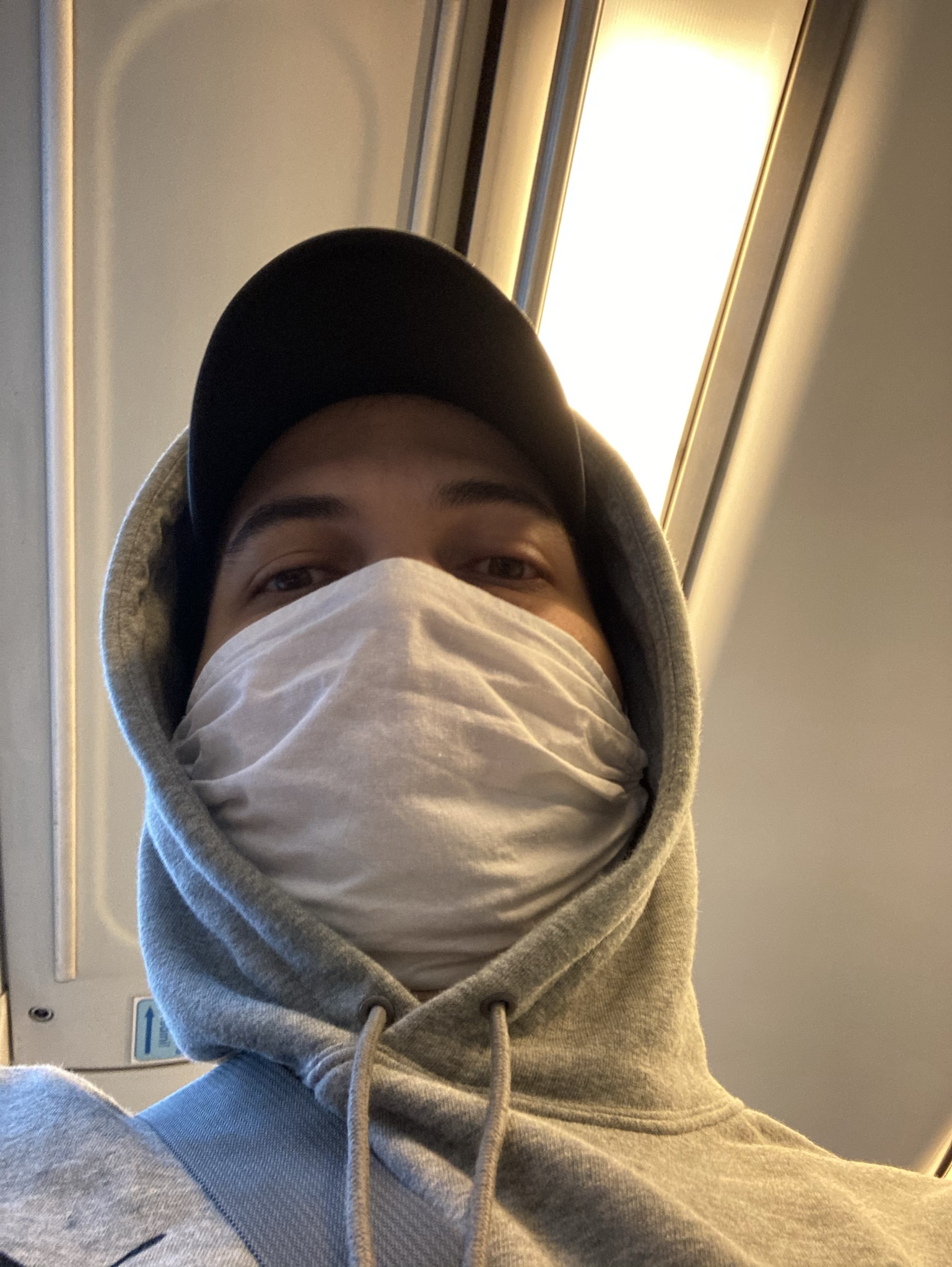
6. Finding work is a key priority for students, both to help finance the study, but also upon graduation. How hard have you found it to find work, and what are the main obstacles?
My situation is a bit different as I work as a software developer for a foreign client. However, I have received a few messages from local recruiters, which gives me a sense that the local job market in my area is in high demand. This is my perspective as a software developer, but my intuition is that businesses in Croatia are growing and the startup scene is getting hotter, so I bet there is currently a need or there will be in the mid-term, for many more professionals in different areas. Just to mention one example, in my last class before Christmas season, an instructor mentioned an open position for an entry-level data scientist / software engineer related to a large project that was recently awarded to one company. He asked us if any of us were interested in considering this role, so even as a student, some opportunities might knock on your door.
7. Tell us about the Croatian lifestyle and making friends. How has it been for you?
The first time Croatia struck me in a fun way was when I learned about the coffee culture here. You can go for coffee and easily spend hours talking to someone. I learned of this fact from my first landlady here, Marija, who kindly opened the doors of her house to me when I was looking for a place to rent. A special shout out to her mom, who cooks the best desserts I have tried in Croatia. Since then, I have experienced something of the "go for a coffee" lifestyle.
My first group of friends was made up of classmates from a Croatian language course. We were of very different origins: Algeria, Ethiopia, India, Italy, Russia, South Korea, United States and Venezuela (myself). I was lucky enough to befriend all my classmates, among whom I remain in touch with Chichi (a dear friend from Ethiopia), Kristina (the best Croatian teacher) and Ritika (a smart MD student from India). Still, the pandemic made things a bit tricky when classes moved online, but every now and then it's fun to go out for coffee with a friend. I also made a couple of friends from Spain this semester of my studies, and since we are enrolled in the same courses, we managed to find time for study sessions. With them, there are definitely a lot of cultural affinities, but sometimes, it's great to reconnect with your mother tongue, although I'm not sure we understand 100% of the time due to the different jargon, but 99% of the time we catch up with our different accents, words and speech styles.
I have lived in three other countries and I think Croatia is more open on average, but I find very rewarding when I interact with people from different cultures.
8. Do you plan to (try and) stay in Croatia when your studies finish? Why/not?
Absolutely. My goal is to stay here after finishing my studies. My current job is 100% remote so I could stick with it while being here after I graduate, but it will also depend on the type of visa available at the time. Apart from all the pros I mentioned earlier, there is also a specific one for me, as I'm involved in a startup-like project that is part of my master's studies. I am part of a team that is developing a game-based learning app for children. We really have a great product in the works and we are all looking forward to taking it to the next level. I can't say 100% sure that I will stay in Croatia if my career path requires me to relocate, but either way, Croatia has had a lasting impact on me, so let's see what the future holds.
9. Three things you have enjoyed most about your experience studying in Croatia?
- The quality of education and instructors
- Cost of living
- Personal safety
10. What advice do you have for people who are considering studying in Croatia?
I highly recommend trying Croatia if you are looking for a quality education at a reasonable cost of living.
If you are a third-country citizen, you may find the paperwork cumbersome, but in my personal experience it is well worth the effort. Hopefully, things will improve in the future and problems with clarity or availability of information will eventually be minimized.
In any case, there is plenty of information online on sites like Total Croatia News or Expat in Croatia, about most of the procedures for applying for a study-based residence permit, finding accommodation, etc. I also recommend checking out njuskalo.hr and index.hr/oglasi/ for accommodation. Both sites are only available in Croatian, but you can use an integrated online translation service to navigate them so you can get the content translated in real time.
Are you an international student on a graduate or post-graduate course in Croatia, who would like to be featured in this series? Contact us on This email address is being protected from spambots. You need JavaScript enabled to view it. Subject Study.
To learn more about the options for studying in Croatia, check out the Total Croatia Study in Croatia guide.
For more information on courses offered by Algebra University College, visit the official website.
Algebra University College Becoming MIT’s First MicroMasters Pathway in Croatia
August 18, 2021 - Algebra University College, the leading Croatian school for digital technologies, has joined MITx MicroMasters program pathway collaboration with MIT (Massachusetts Institute of Technology), one of the most prestigious educational institutions in the fields of science and technology in the world.
This will create a credit pathway from MITx MicroMasters in Statistics and Data Science to Algebra’s graduate program in data science for both Algebra students and global learners. Students who complete their studies on the integrated program will receive a diploma from Algebra University College along with the MITx MicroMasters credential in statistics and data science.
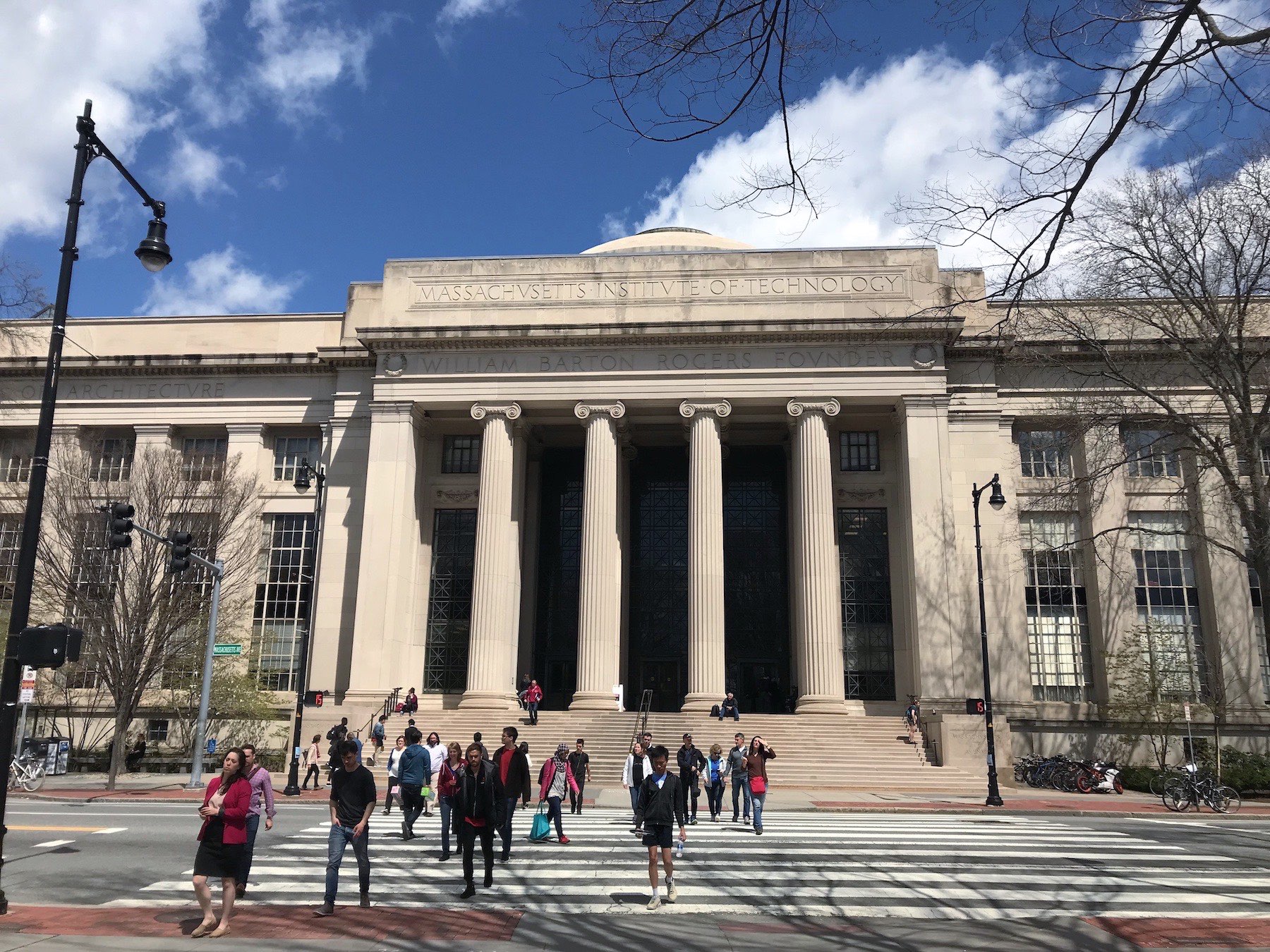
MIT (Massachusetts Institute of Technology) and Algebra University College collaborated on the MicroMasters credit pathway, which will make it possible for Algebra University College students, from the upcoming academic year, to attend a part of their curriculum in a hybrid way that includes courses from MITx MicroMasters program in statistics and data science as part of the curriculum. The students who enrol in the graduate program of data science, the only specialist graduate program of this kind in Croatia, will be able to choose between the usual program offered by the Algebra University College, and a hybrid program that includes five MITx courses as well as MIT’s certification of the finished program.
Algebra University College will also recognize MIT’s MicroMasters credential for credits for those students who have already completed MITx MicroMasters statistics and data science program on their own and therefore make it possible for the students to enroll in a data science graduate program in Croatia at the Algebra University College, thus making studies in Croatia more appealing and attracting a larger number of foreign students to study in our country.
The syllabus of the Algebra University College graduate program in data science in this new integrated form includes courses from the MITx MicroMasters program in Statistics and Data Science (https://micromasters.mit.edu/ds/). The program integrates competencies in probability theory, statistics, machine learning, and data analysis, and it consists of one course for each of those areas and a final exam.
The competencies offered by MITx MicroMasters program in statistics and data science are an excellent match for the Algebra University College graduate data science program, which aims to create competent data scientists with a wide knowledge of computer methods and statistics as well as with a specific understanding of social issues making possible an advanced data analysis and conclusions about trends and occurrences in the real world. Data science experts come from different areas of finished education and different economic sectors, but their common goal is specialization in advanced data analytics.
Tracy Tan, MicroMasters program director at MIT, said: “The MicroMasters courses in statistics and data science were developed by MIT Institute for Data, Systems and Society (IDSS). The courses have a multidisciplinary approach to understanding methods and tools used in data science and include their practical application in data analysis and machine learning. Beside the fact that Algebra’s students will get an opportunity to acquire knowledge by MIT standards, this cooperation also opens space for MITx McroMasters learners from all over the world, through the recognition of their previous academic outcome, to continue their education in Algebra in Croatia after completing their MicroMasters study.”

“This new cooperation between MIT and Algebra, this time on implementing the graduate program in data science, brings important news for future students. Not only that we strengthen our graduate program with lectures by eminent professors from MIT departments of computer science, economics, and mathematics, we also create a wide-open door to the students in a global community through life-long affiliate status of the MIT Alumni Association, subscription to scientific databases, and through the subscription to the online edition of MIT Technology Review. We are delighted for this extended cooperation with such an established institution as MIT because our program in data science is in line with the global trends and actual knowledge in this area,” said Mislav Balković, PhD, dean of the Algebra University College.
More information about the integrated graduate program in data science at Algebra University College can be found here.
For more, follow our lifestyle section.
Croatian Algebra Awards Scholarships Worth More Than 500,000 HRK
June the 1st, 2021 - The Croatian Algebra educational institution is offering scholarships for its MBA programme which exceed the very handsome amount of 500,000 kuna.
As Novac writes, the final presentation of the candidates who have applied, the team work on this assignment and then the announcement of the most successful scholarship holders ended the scholarship competition of the Croatian Algebra University this past weekend.
The above competition involved candidates who were given the opportunity to win full and partial scholarships for the only e-Leadership MBA programme in Croatia and the wider area. It involves teaching modules imbued with topics related to the digital transformation and the industrial revolution 4.0, the Croatian Algebra University said.
The partner of the final day of the competition was one of the most innovative global marketing companies, Red Bull, whose experts prepared a challenging business case to be solved by Algebra's scholarship candidates. The mentors available to the teams were Hrvoje Martic (Infodom), Luka Maricic (Superology), Filip Petrovic (JGL), Mario Pavic (Five), Juraj Zlof (GrowthFix), Petra Stojanov (Algebra LAB) and Zeljko Riha (Riha & Stamac).
As part of this year's competition, one full scholarship, one scholarship in the amount of half the tuition fee and ten partial scholarships were awarded. Although the applications for the scholarship competition were individual, on the scholarship day itself, the candidates competed in teams, so that, in addition to individuals, members of the three best placed teams also won partial scholarships for MBA studies at the Croatian Algebra University.
The candidates, who were divided into teams, voted for the performances of other teams and solutions to the aforementioned Red Bull business challenge that they liked the most. Members of the winning team, "Arima One", won scholarships for the MBA programme in the amount of 35,000 kuna per candidate, the second-placed team "Running Cord" was offered scholarships in the amount of 30,000 kuna, while the third-placed team, "Divas", was awarded scholarships in the amount of 25,000 kuna per candidate.
The jury will then award the most valuable prizes, a full scholarship for the MBA programme in the amount of 135,000 kuna, as well as all remaining partial scholarships this year, after further analysis of individual performances in the coming days due to the complexity of the evaluation process and the very good presentations of the candidates with their project solutions. The jury of this year's scholarship competition consists of members of the MBA team of the University of Algebra - Goran Radman, Maja Dujlovic, Arsen Solic and Natasa Soic.
"We believe that our vision of upgrading the classic MBA study with topics related to the digital transformation and the industrial revolution 4.0 is becoming more and more real every year, with each new generation of students.
The great interest we've seen from the candidates for this year's scholarship competition as well as the great successes achieved in the business sphere and in the careers of our previous candidates, as well as our current students and graduates, show that this MBA programme has successfully responded to the challenge of educating people for leadership and management skills, but also that it inspired them to creatively apply digital technologies with the goal of digitally transforming the business of their companies. We'd like to congratulate all of the scholarship holders on their scholarships and we believe that they'll also represent a step towards significant progress in their careers,'' emphasised Arsen Solic of the Croatian Algebra University.
The Algebra MBA scholarship competition is otherwise, and traditionally, a fantastic opportunity for business networking. The final competition, which sees the solving of a specific business challenge, attracts people in similar career positions in some of the best Croatian and international companies. As the Algebra MBA e-Leadership programme combines knowledge and skills from the fields of business management, managerial skills and knowledge of digital technologies, as well as the implementation of digital transformation, its participants are usually those who require some of these skills - and their synergy effect - for further advancement and to take new, leading positions in their companies.
For more, follow our dedicated lifestyle section.


